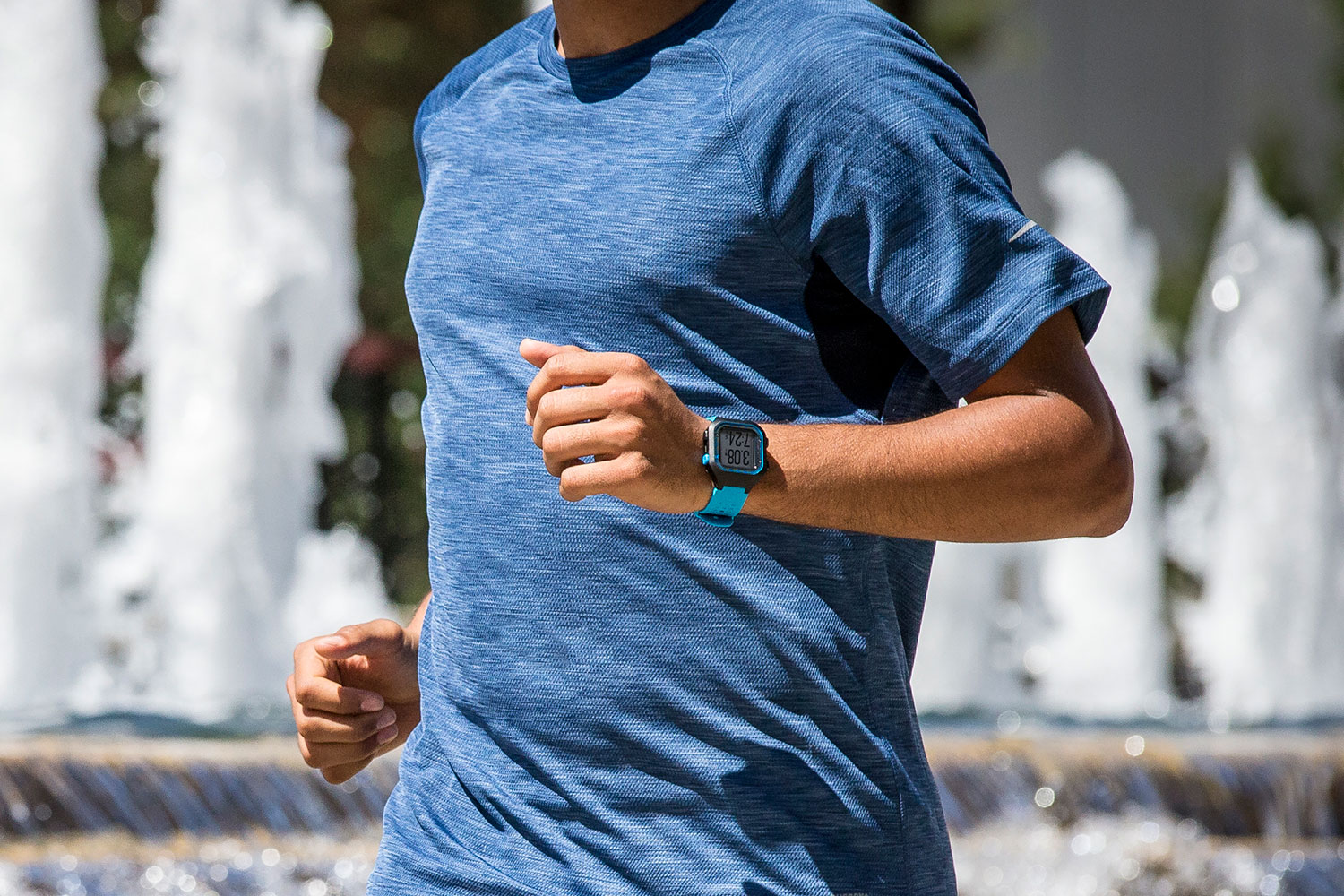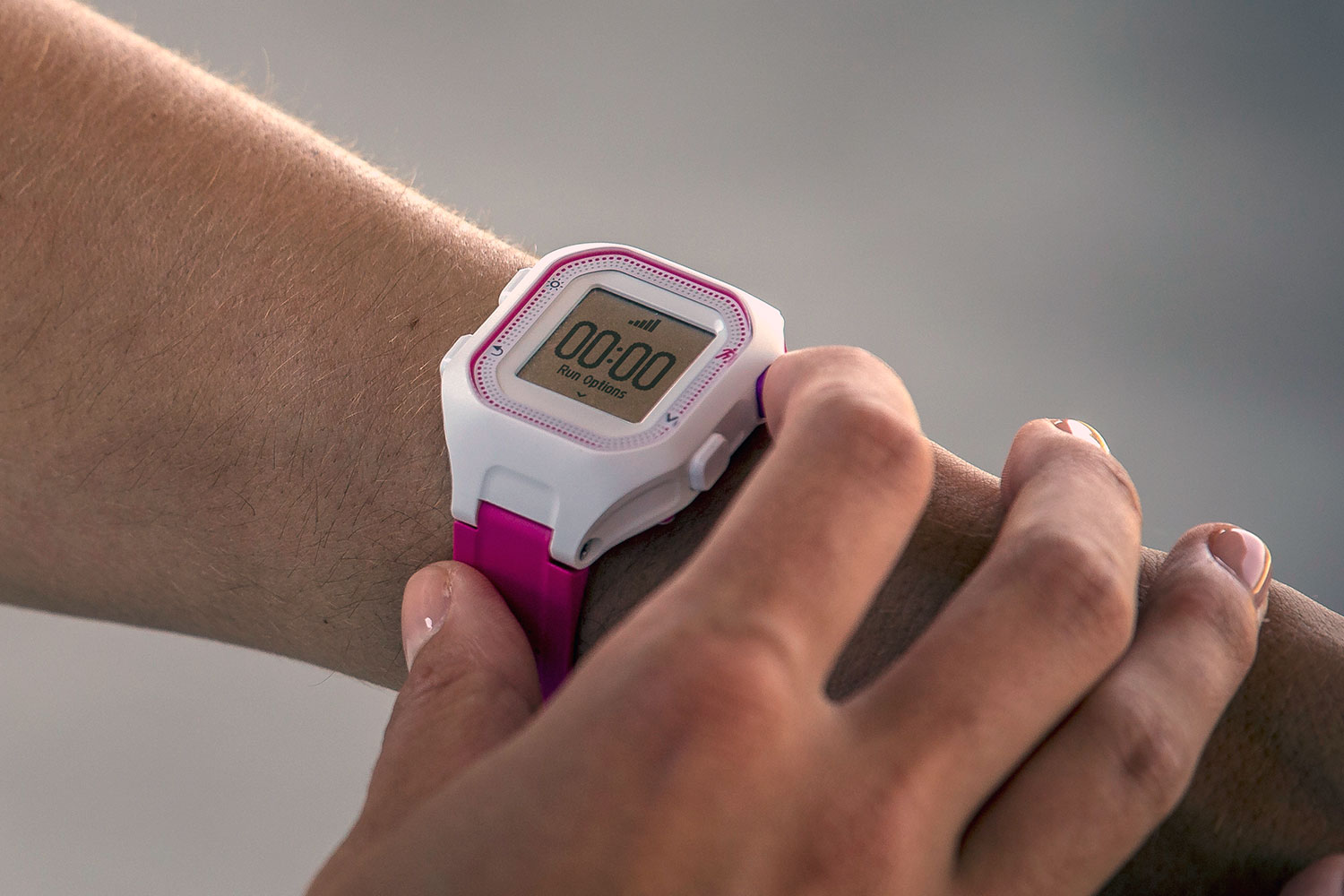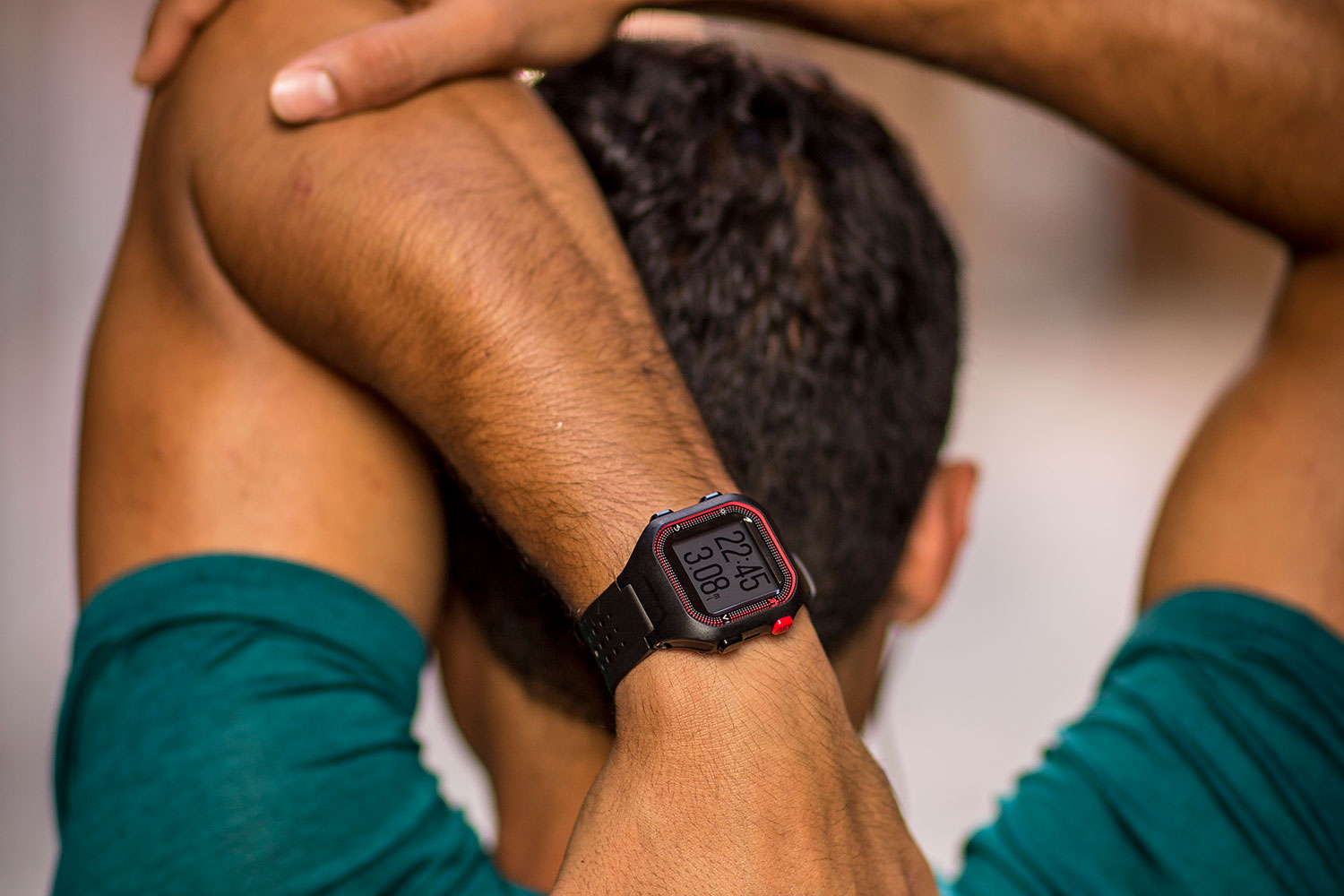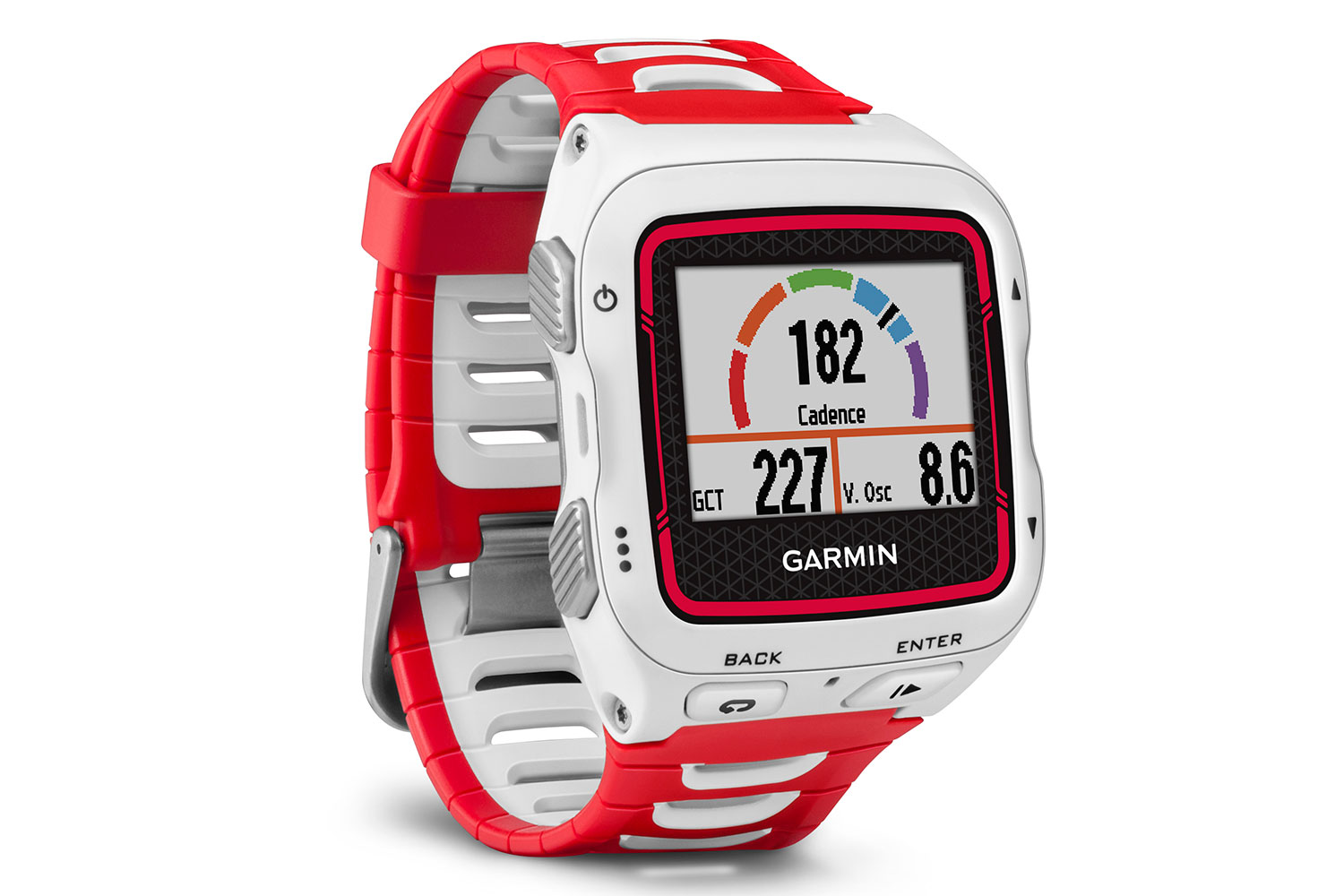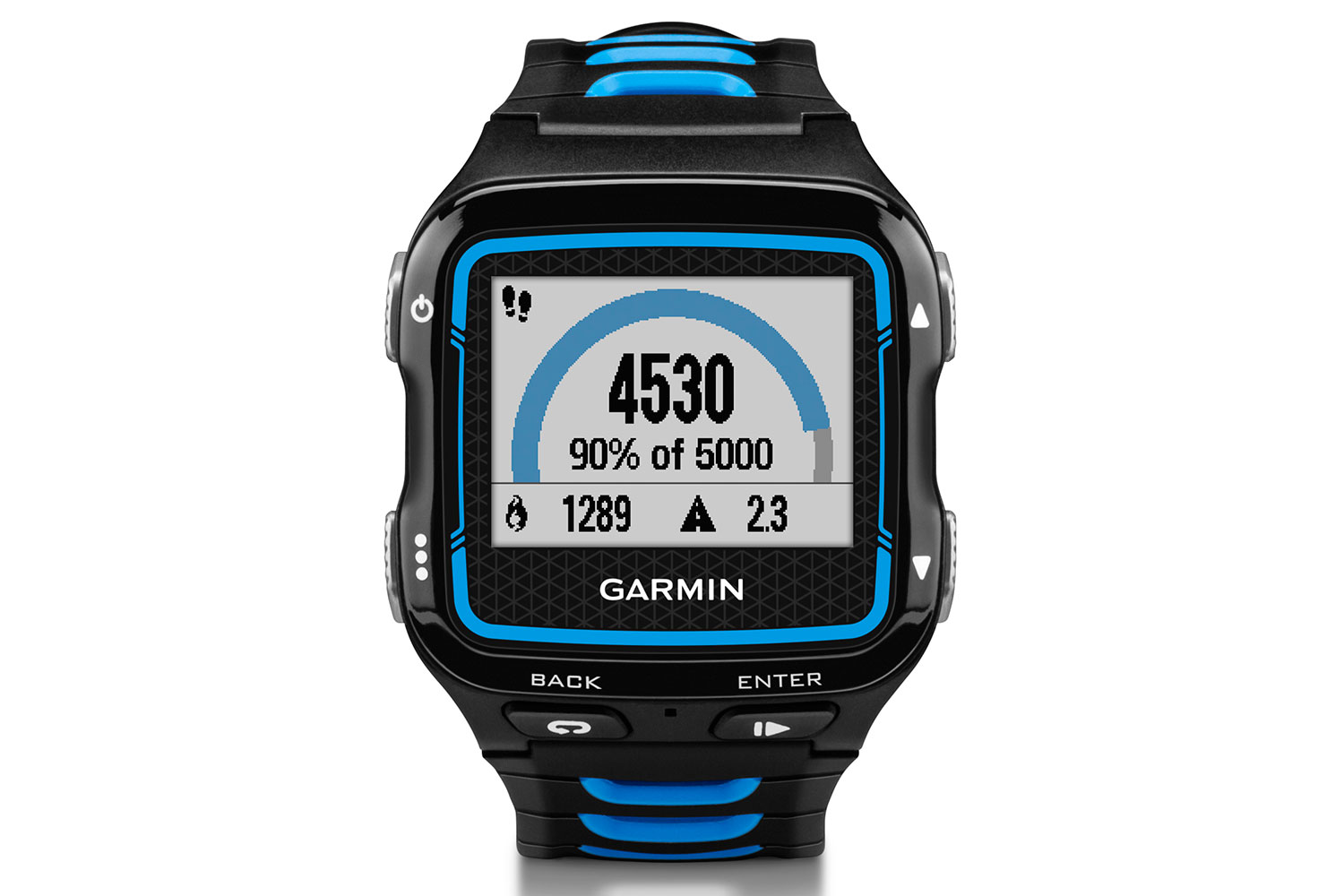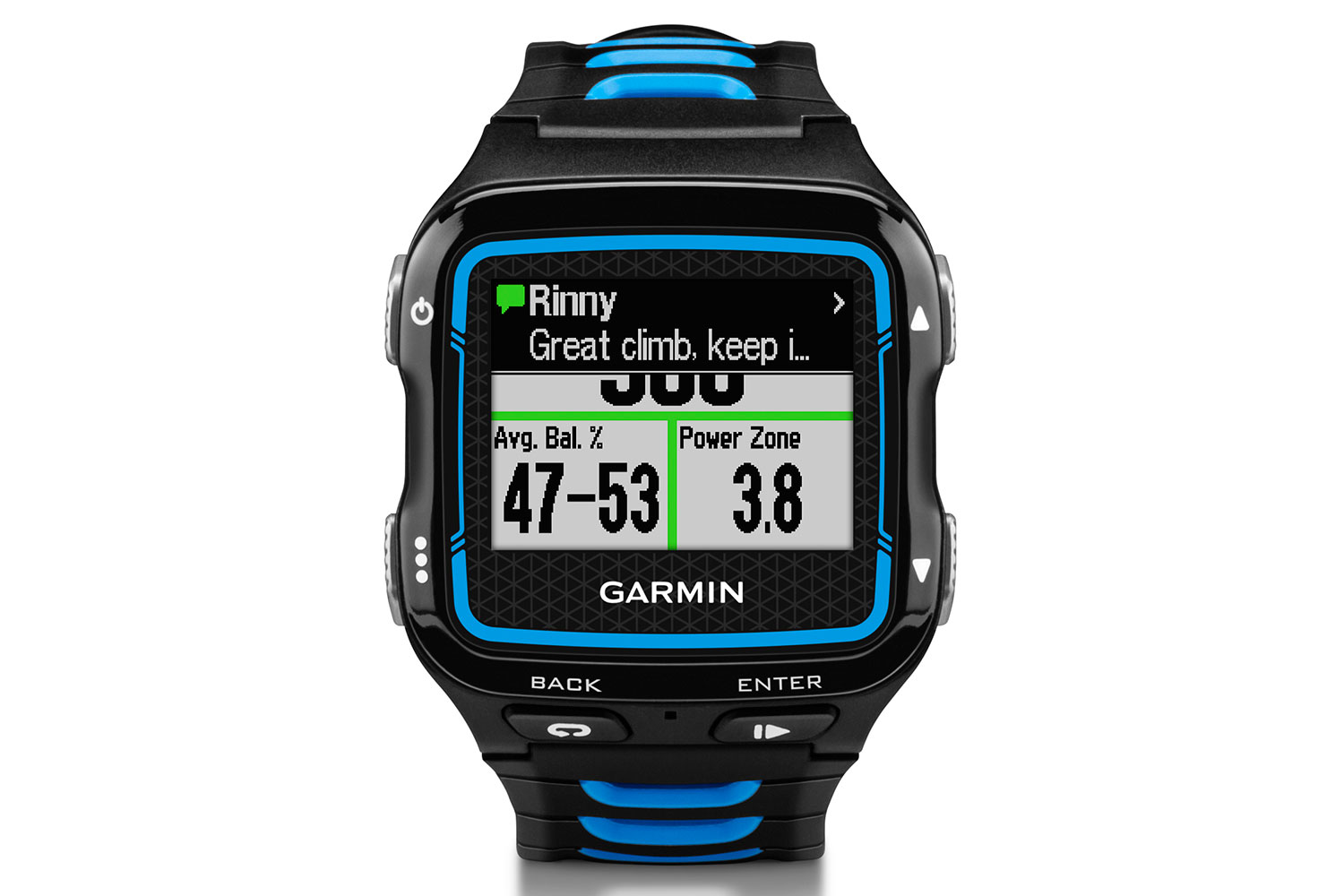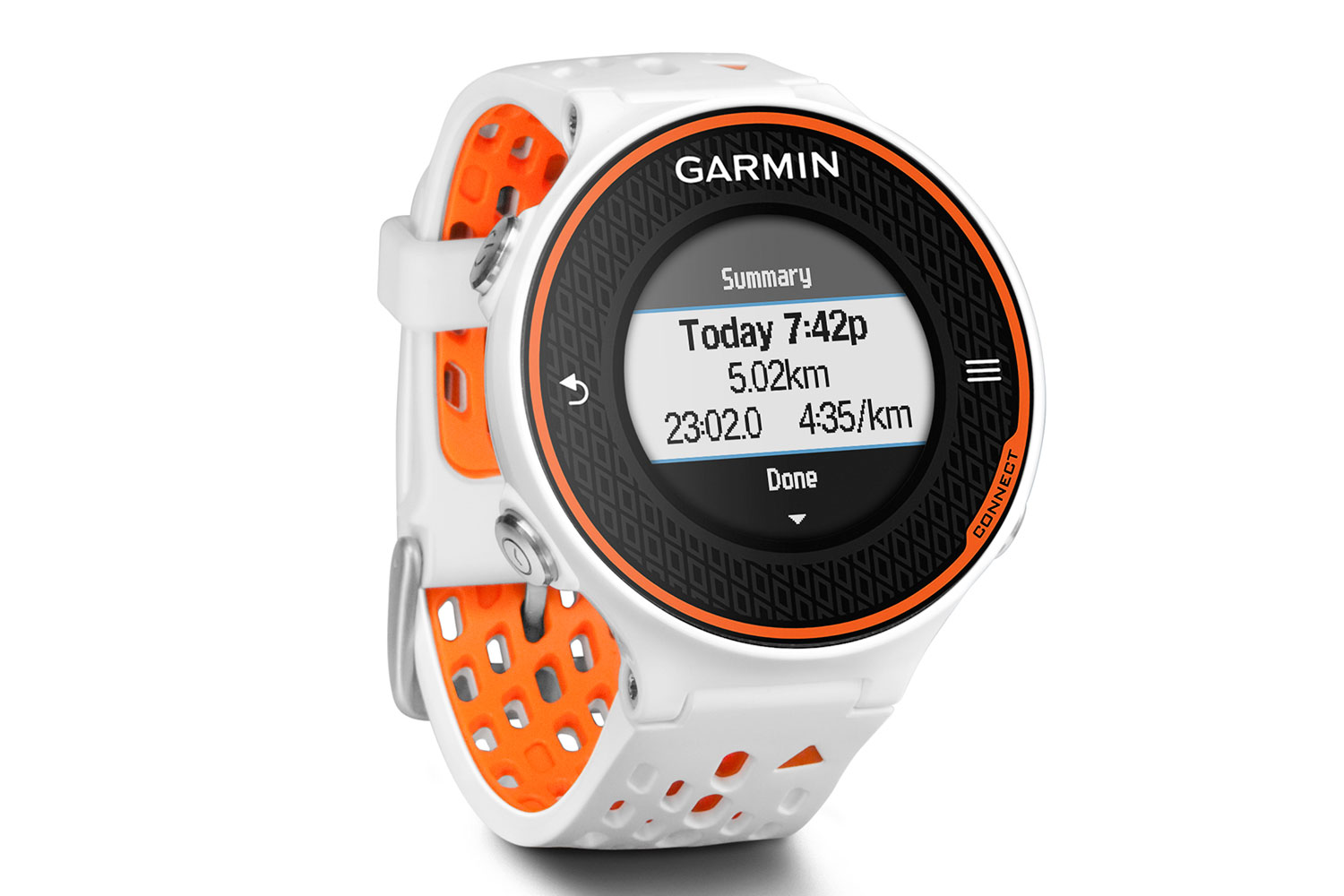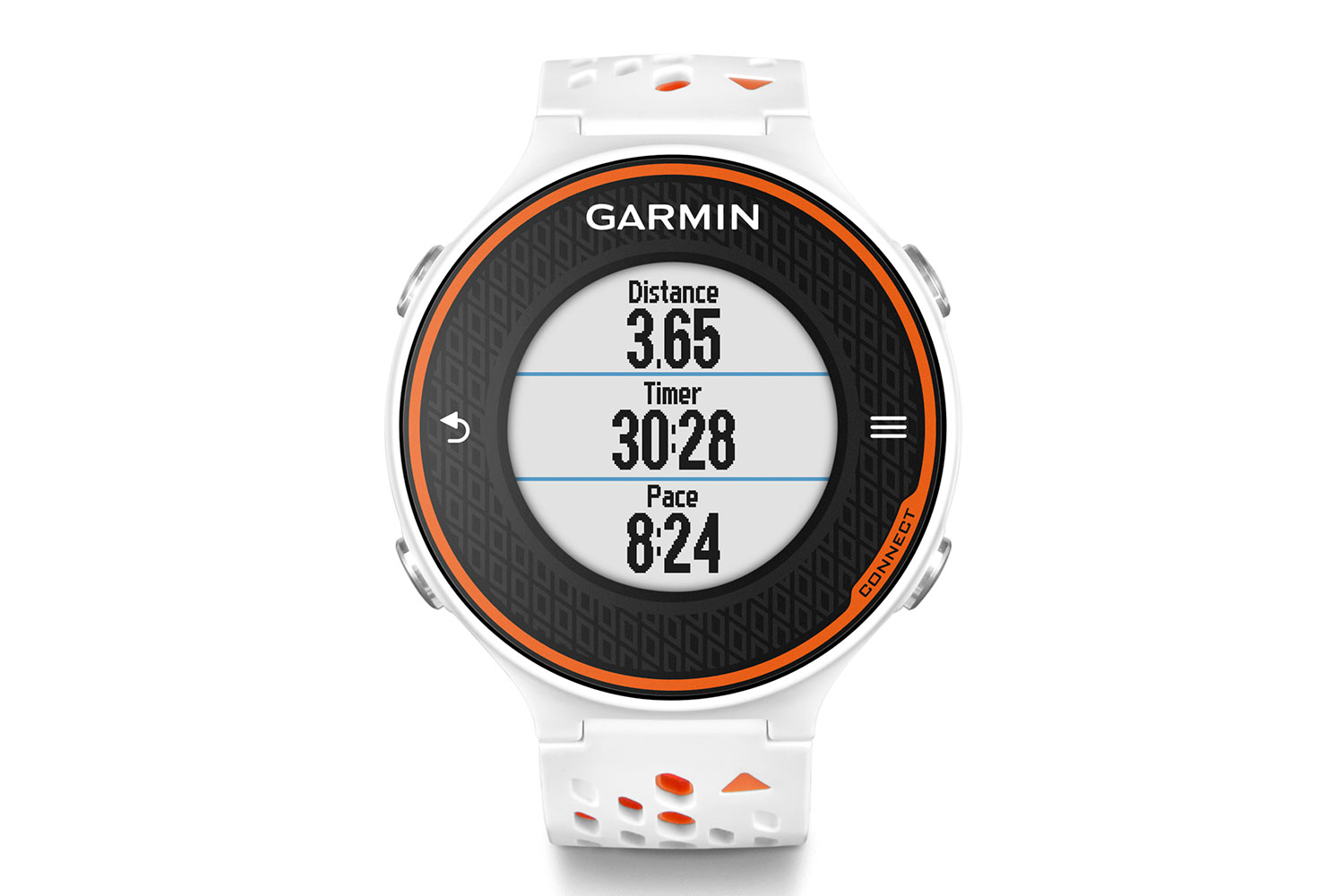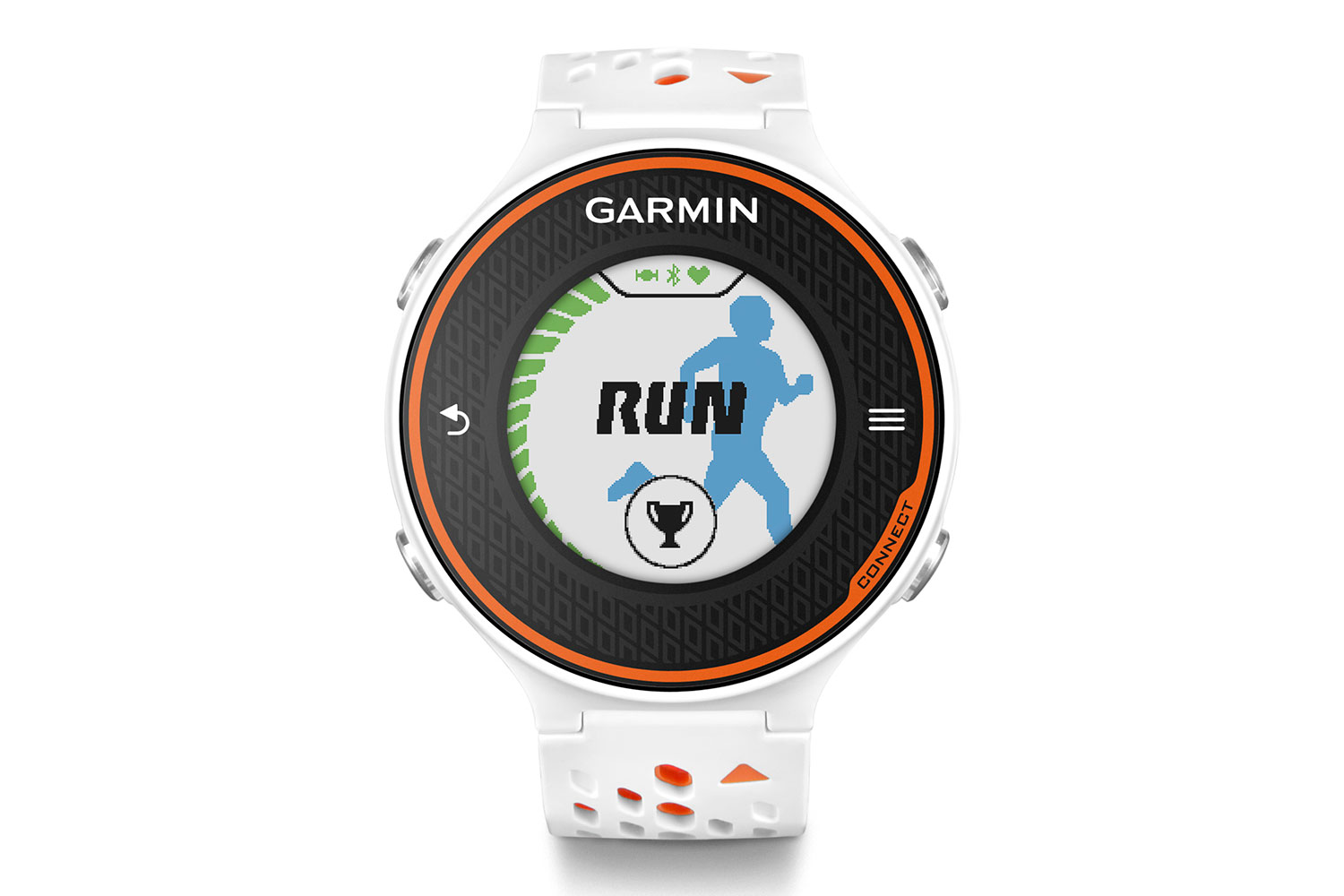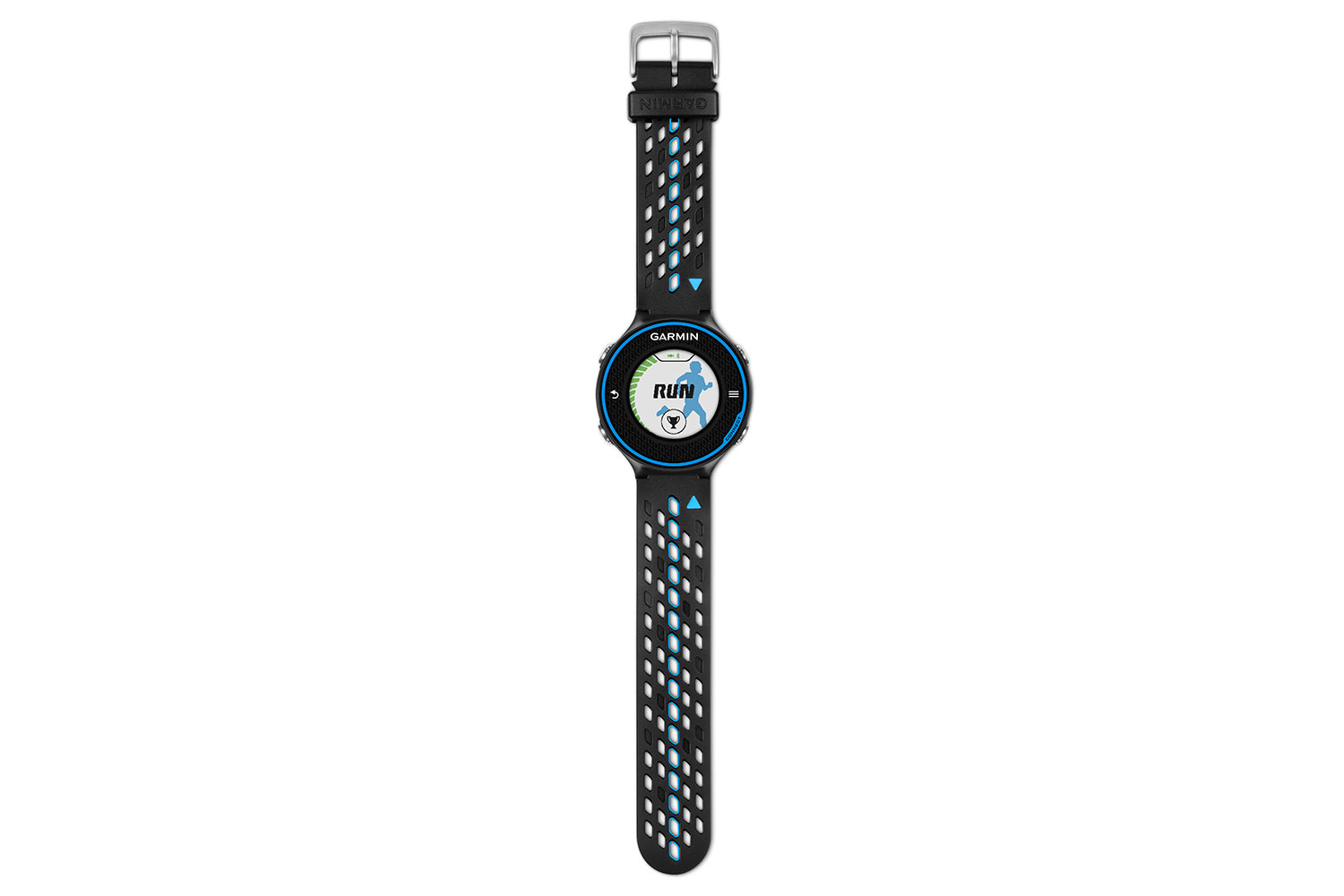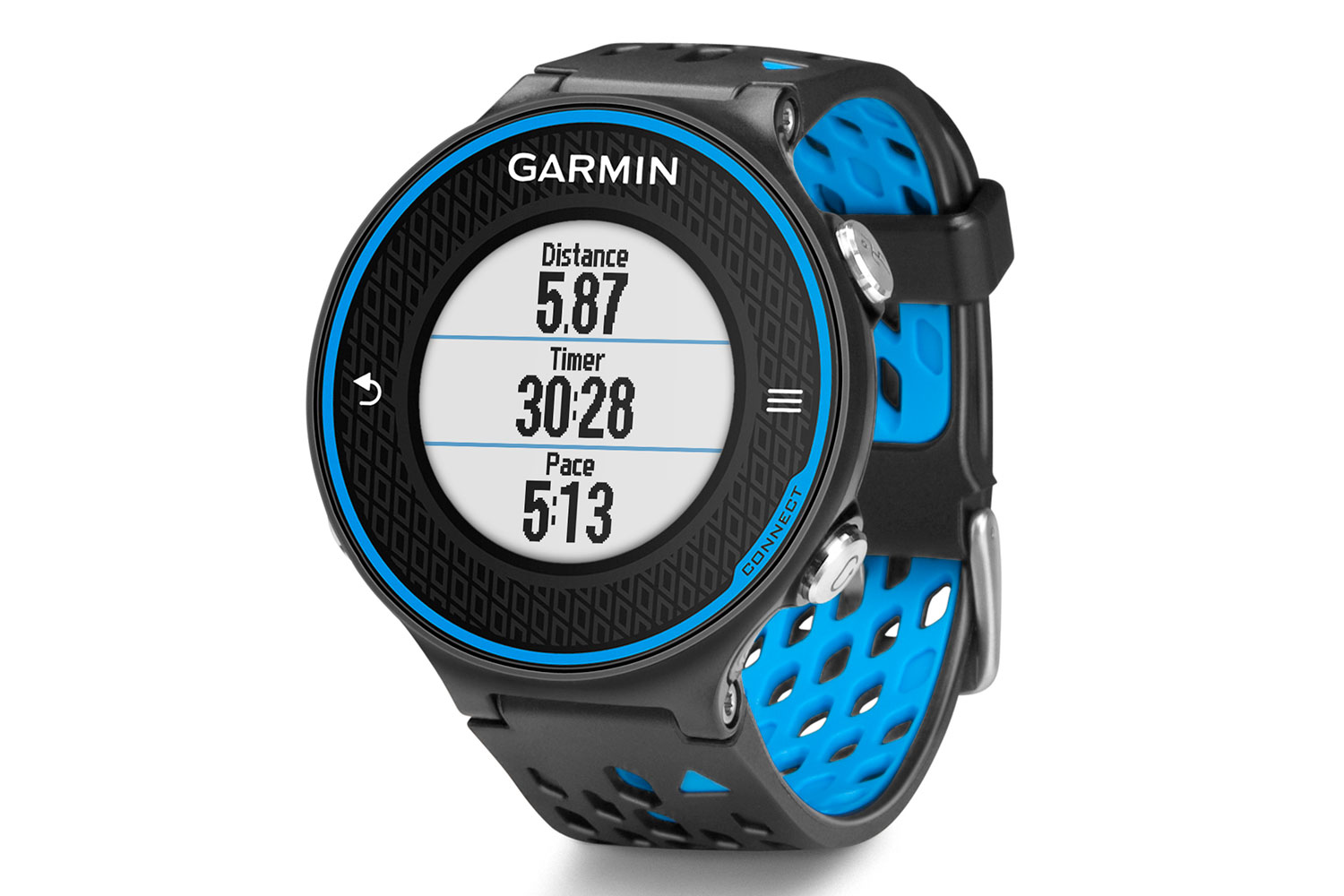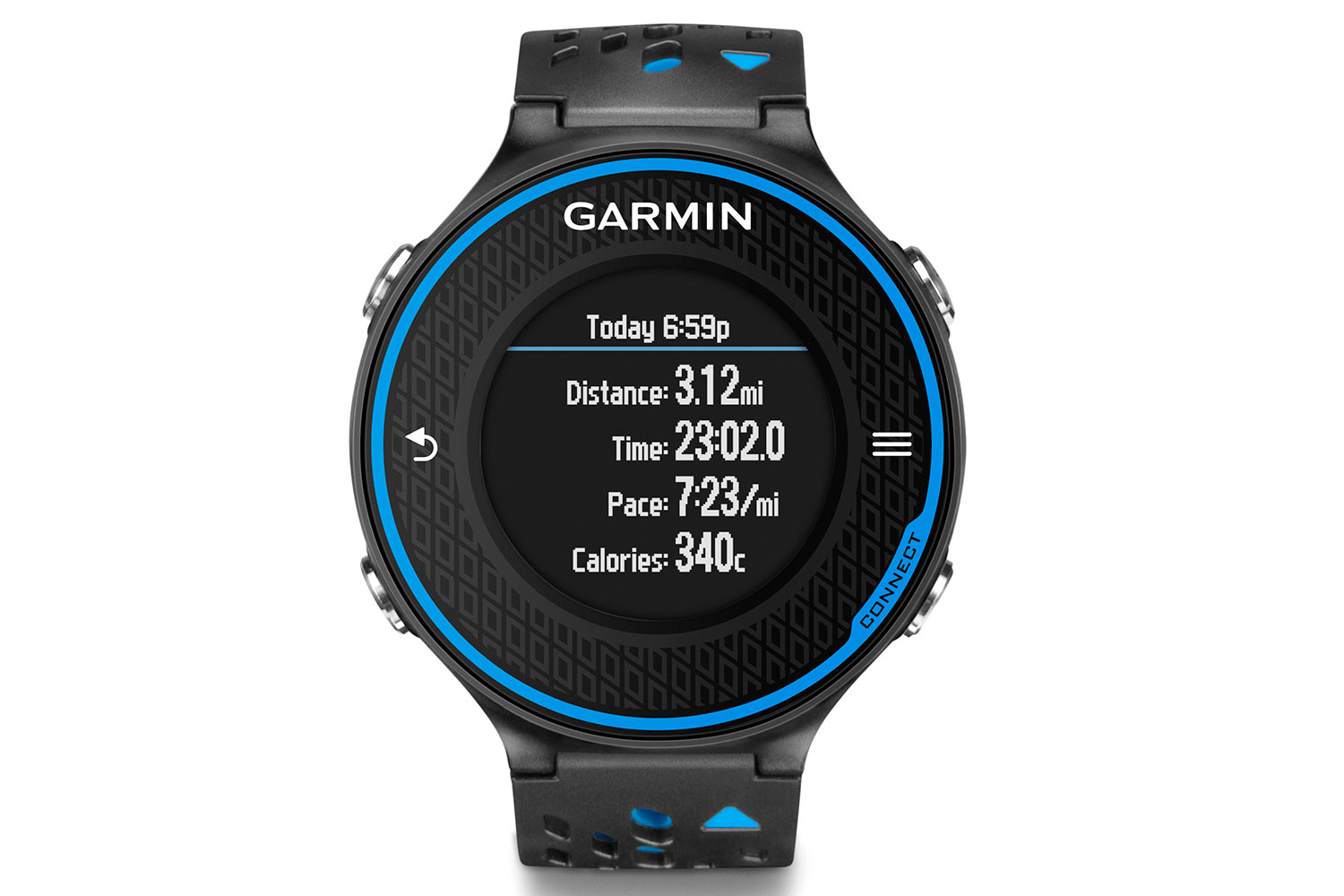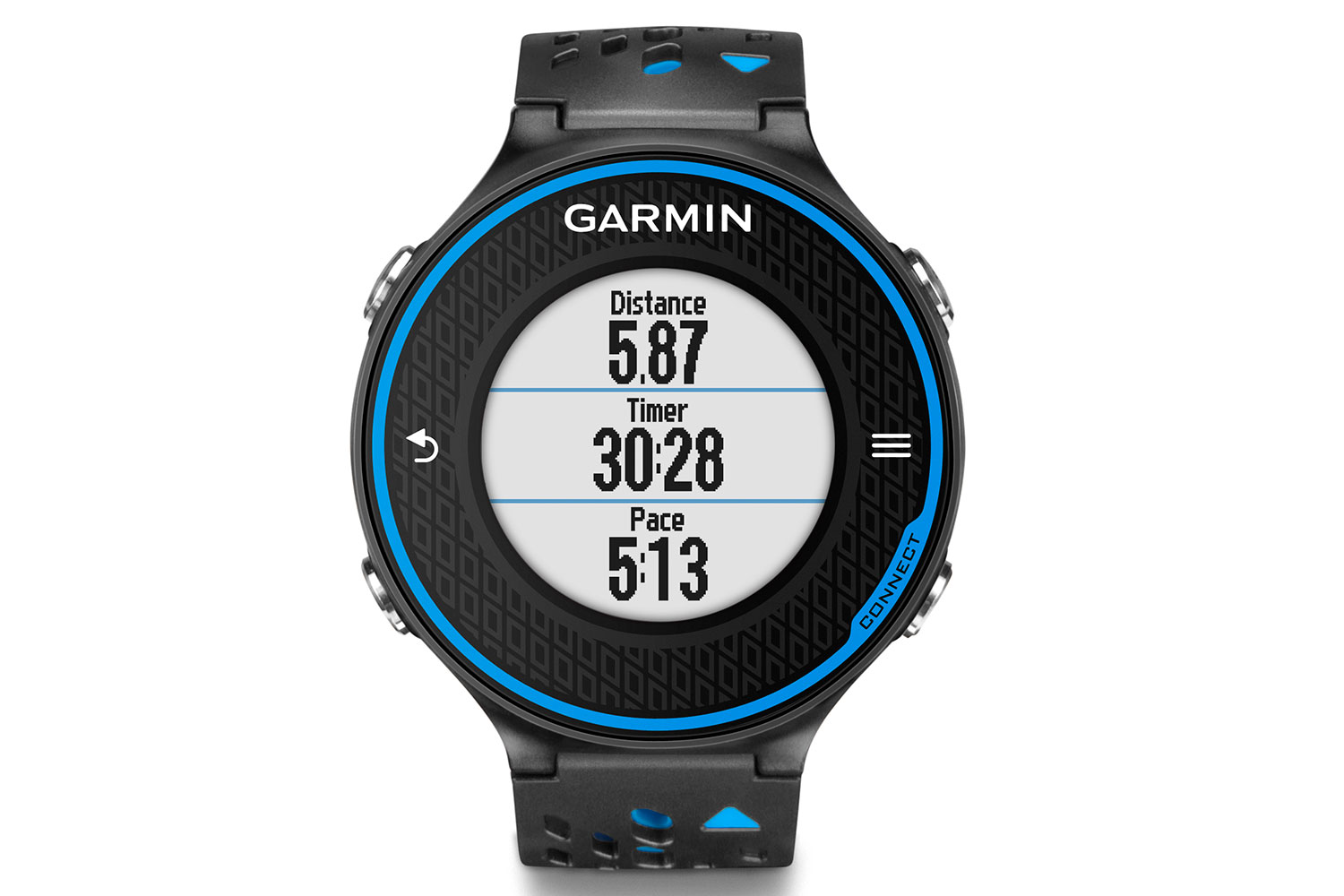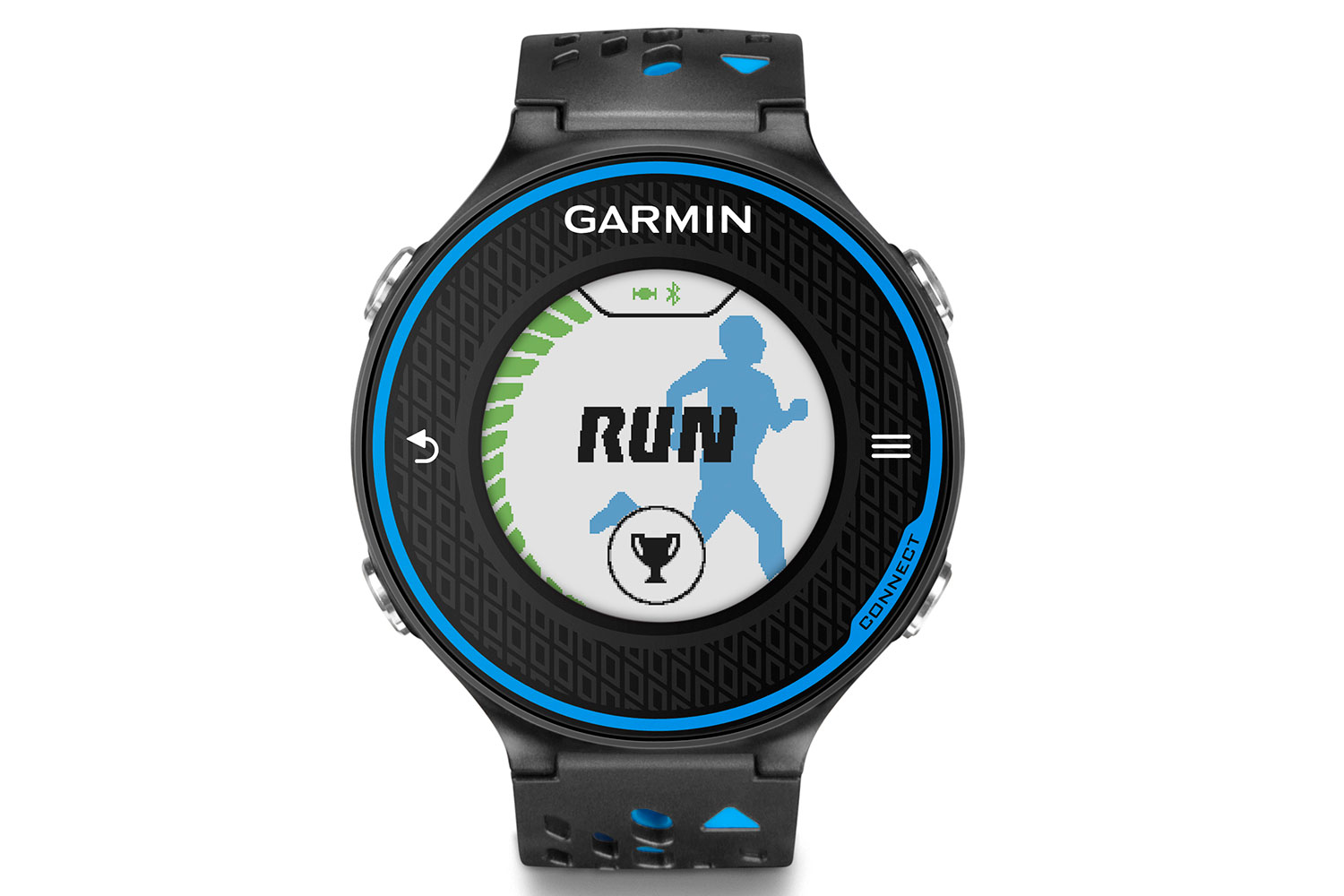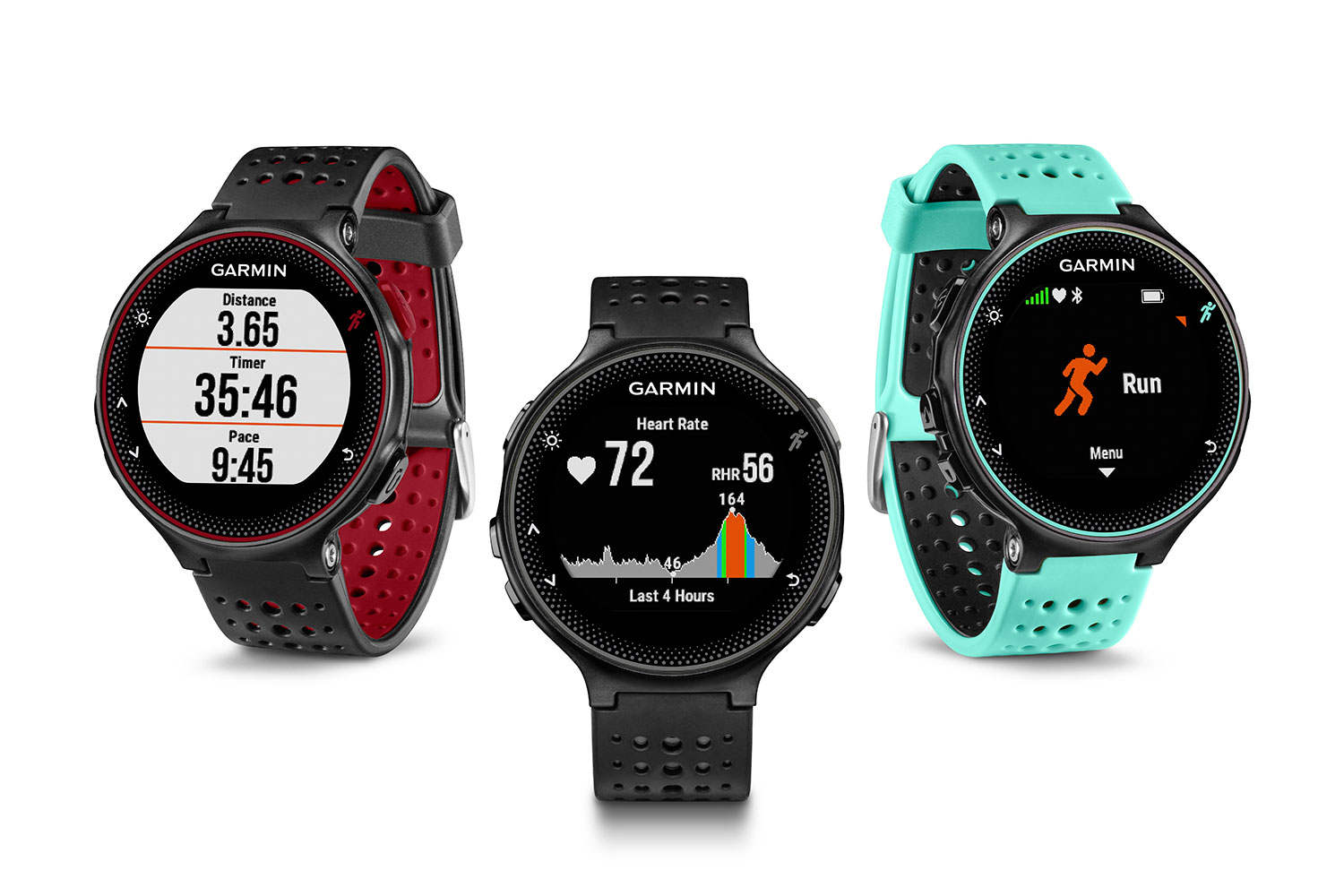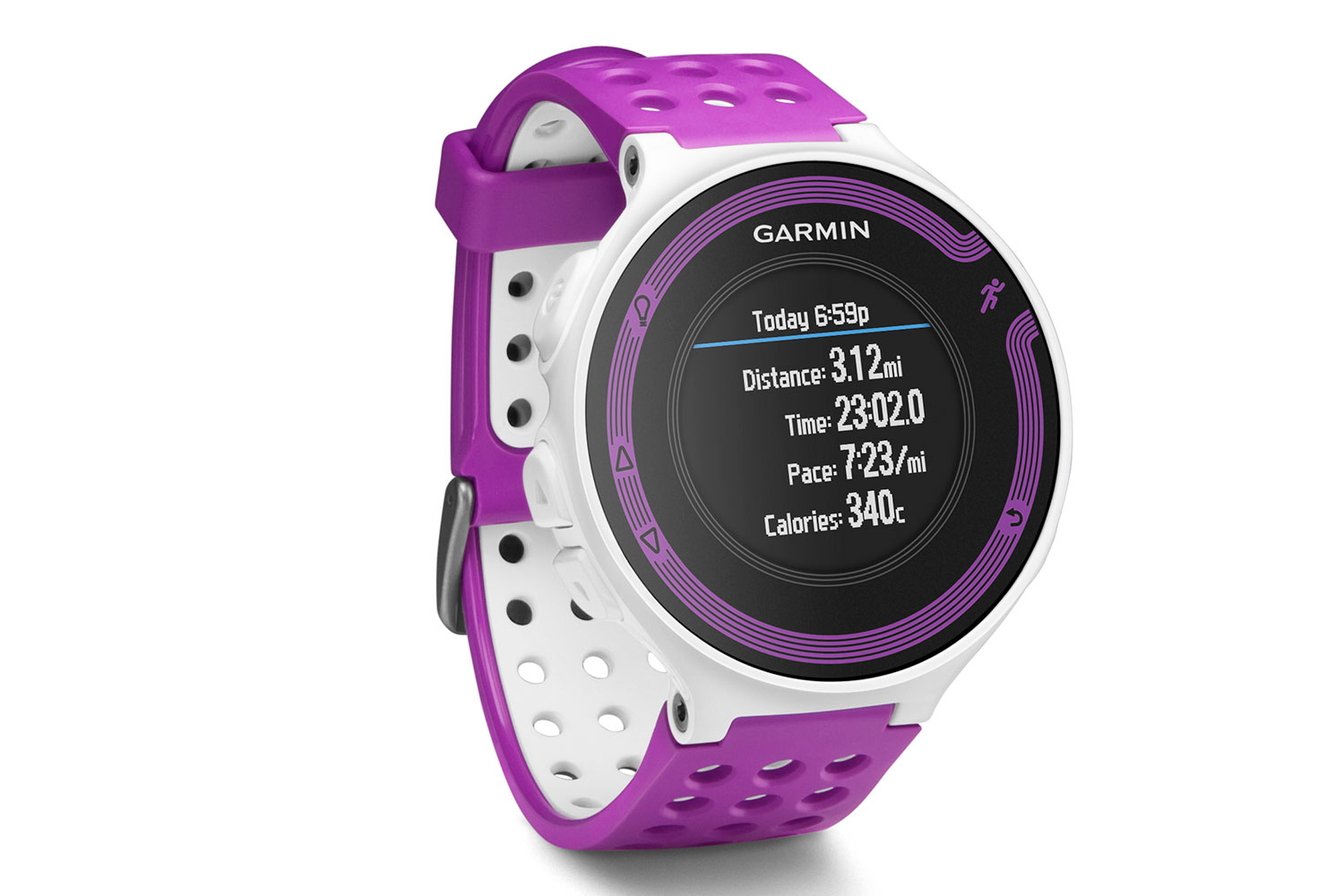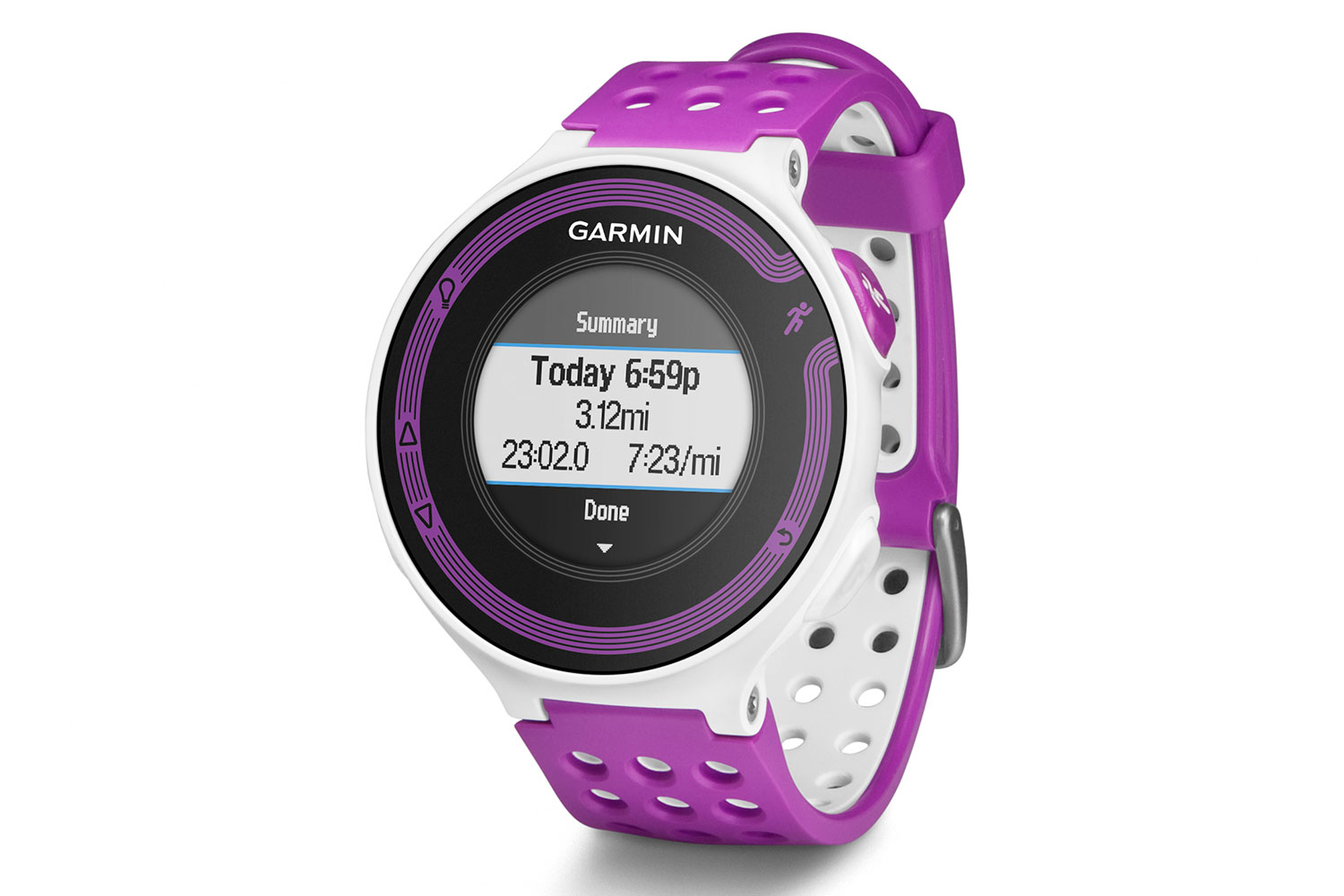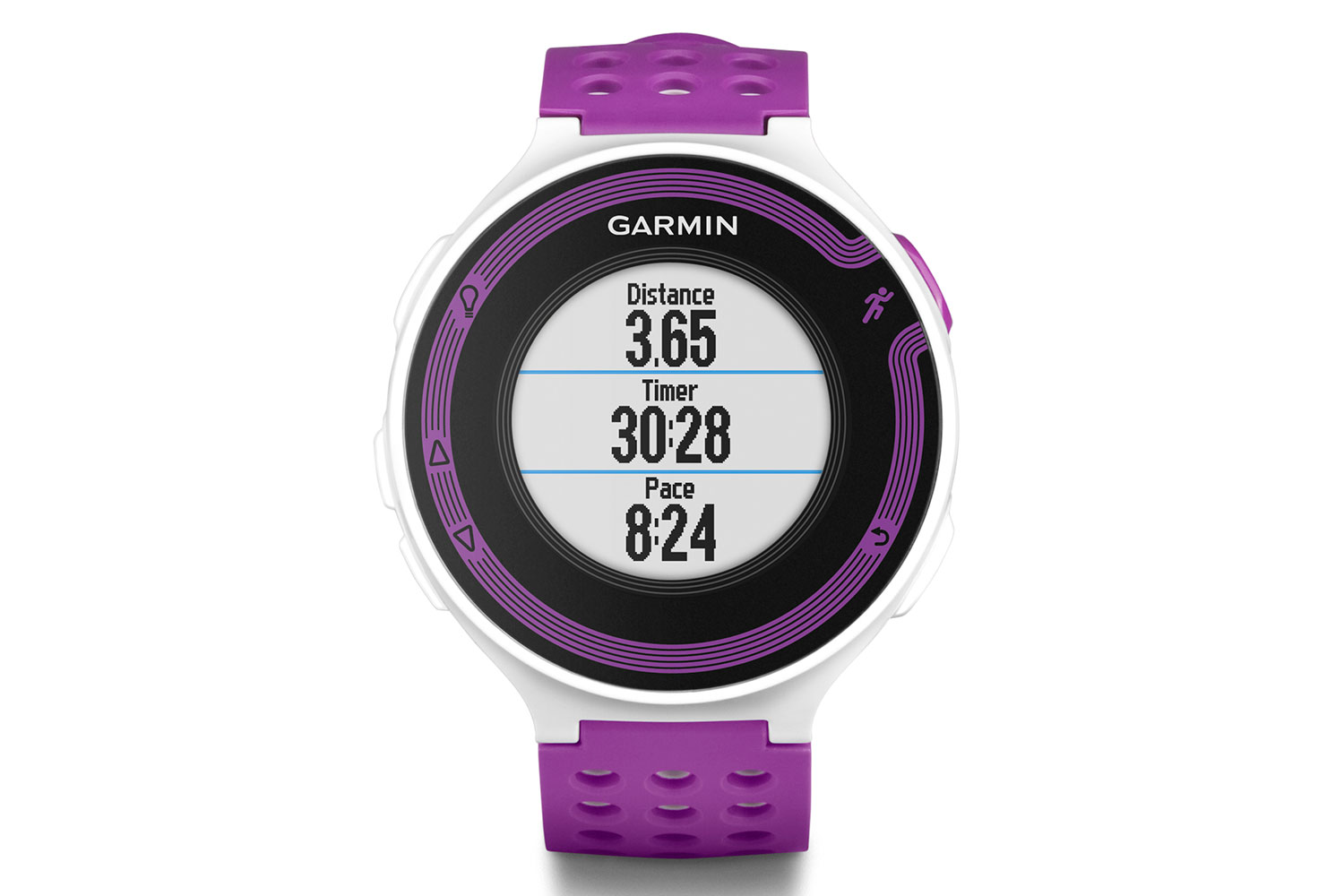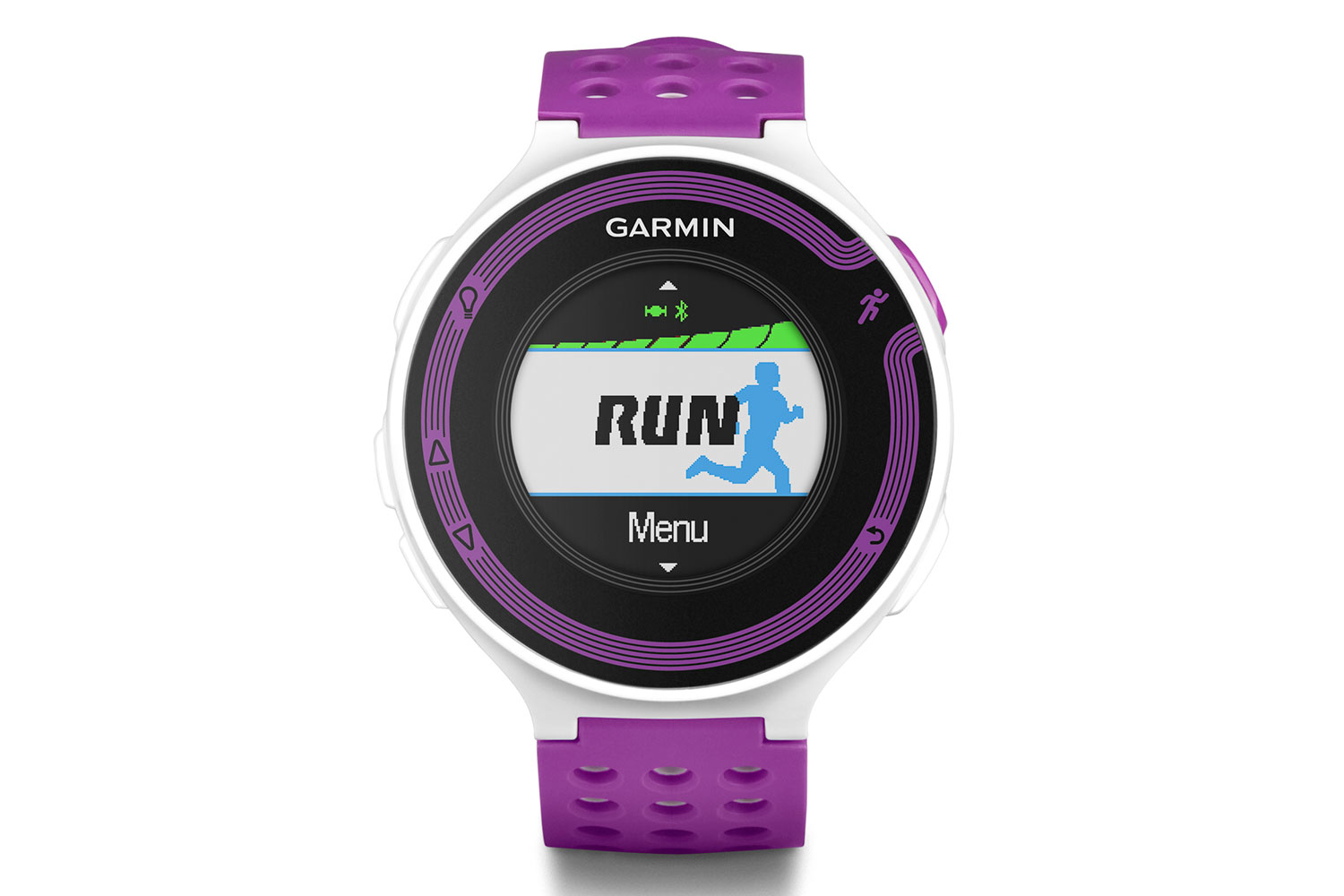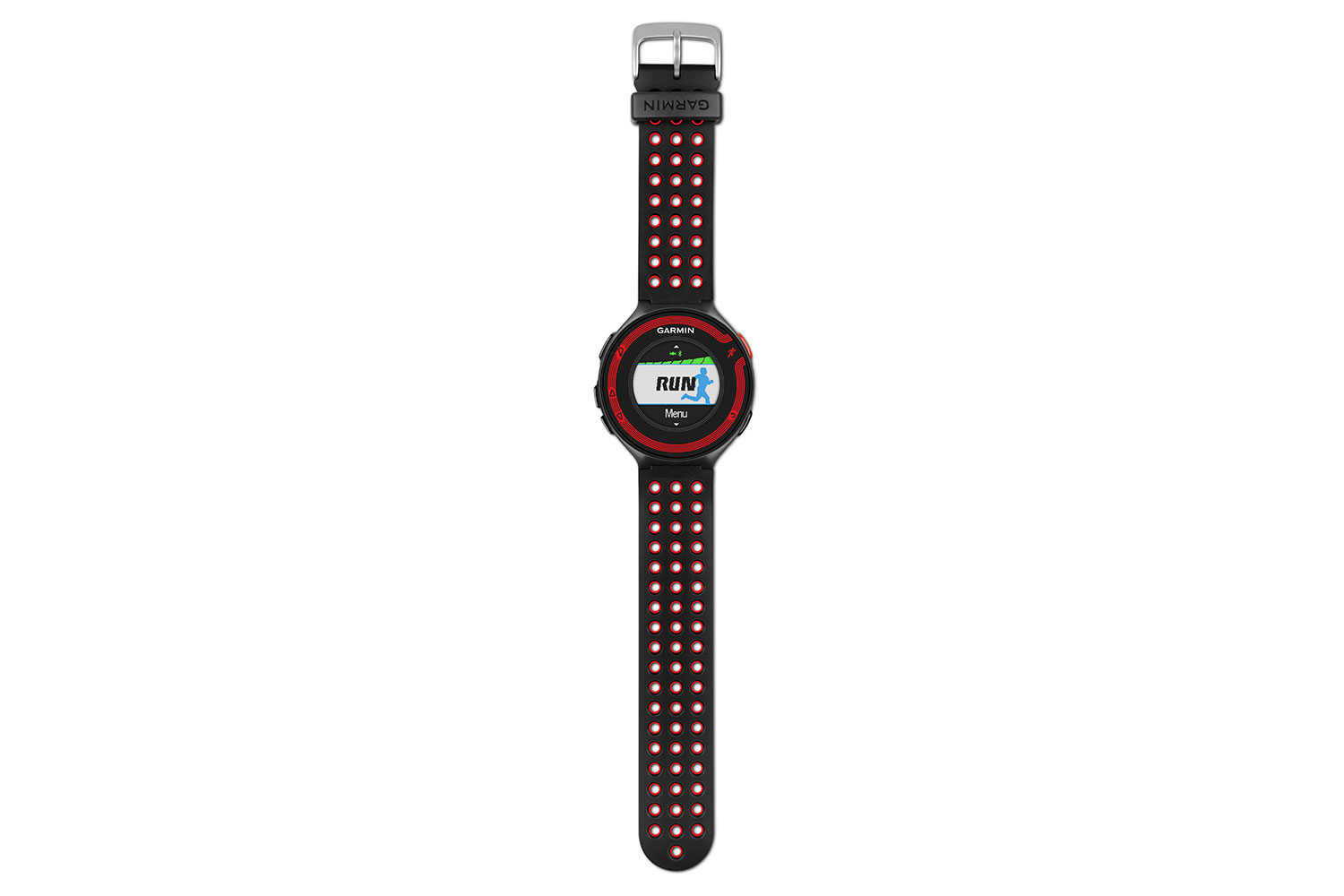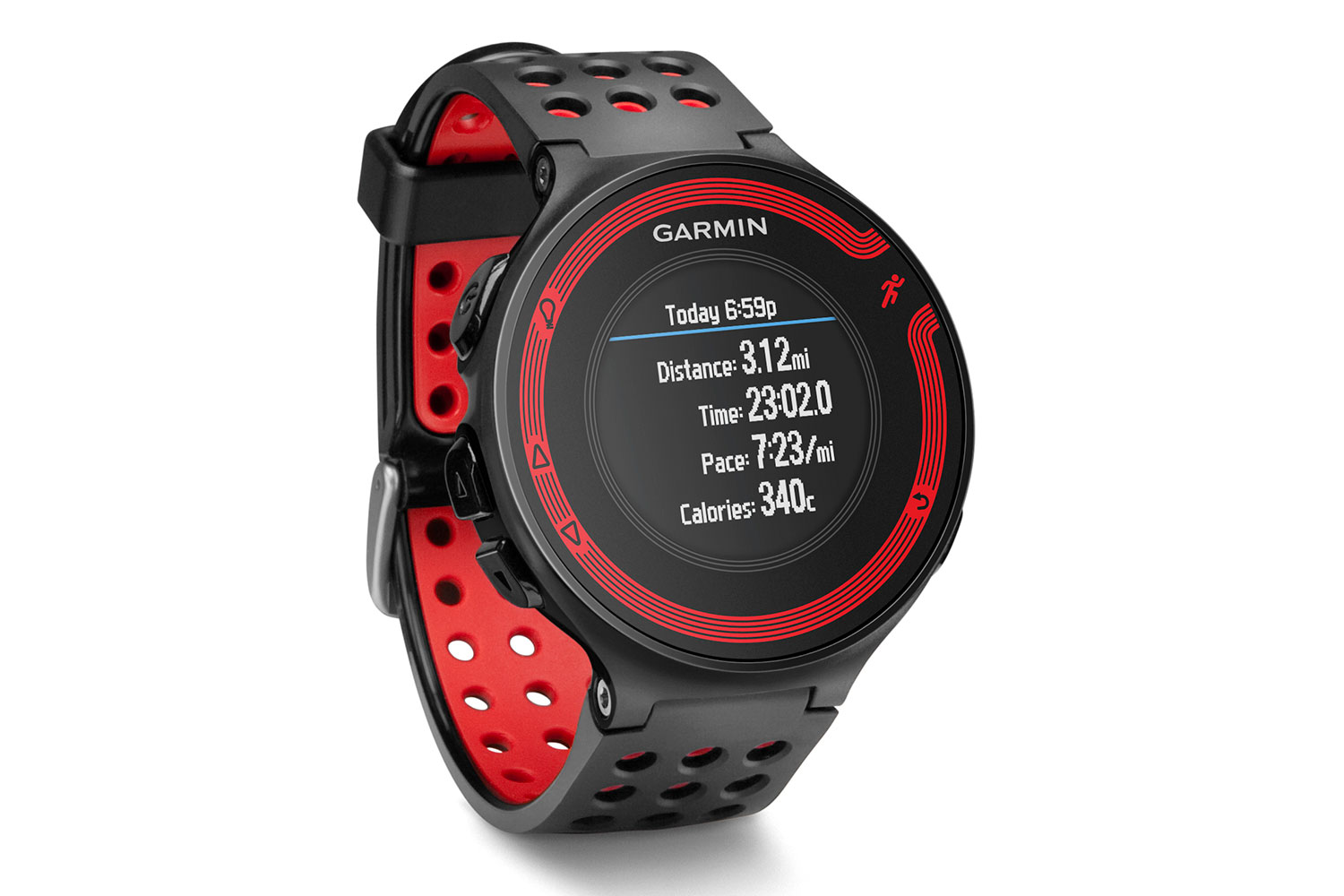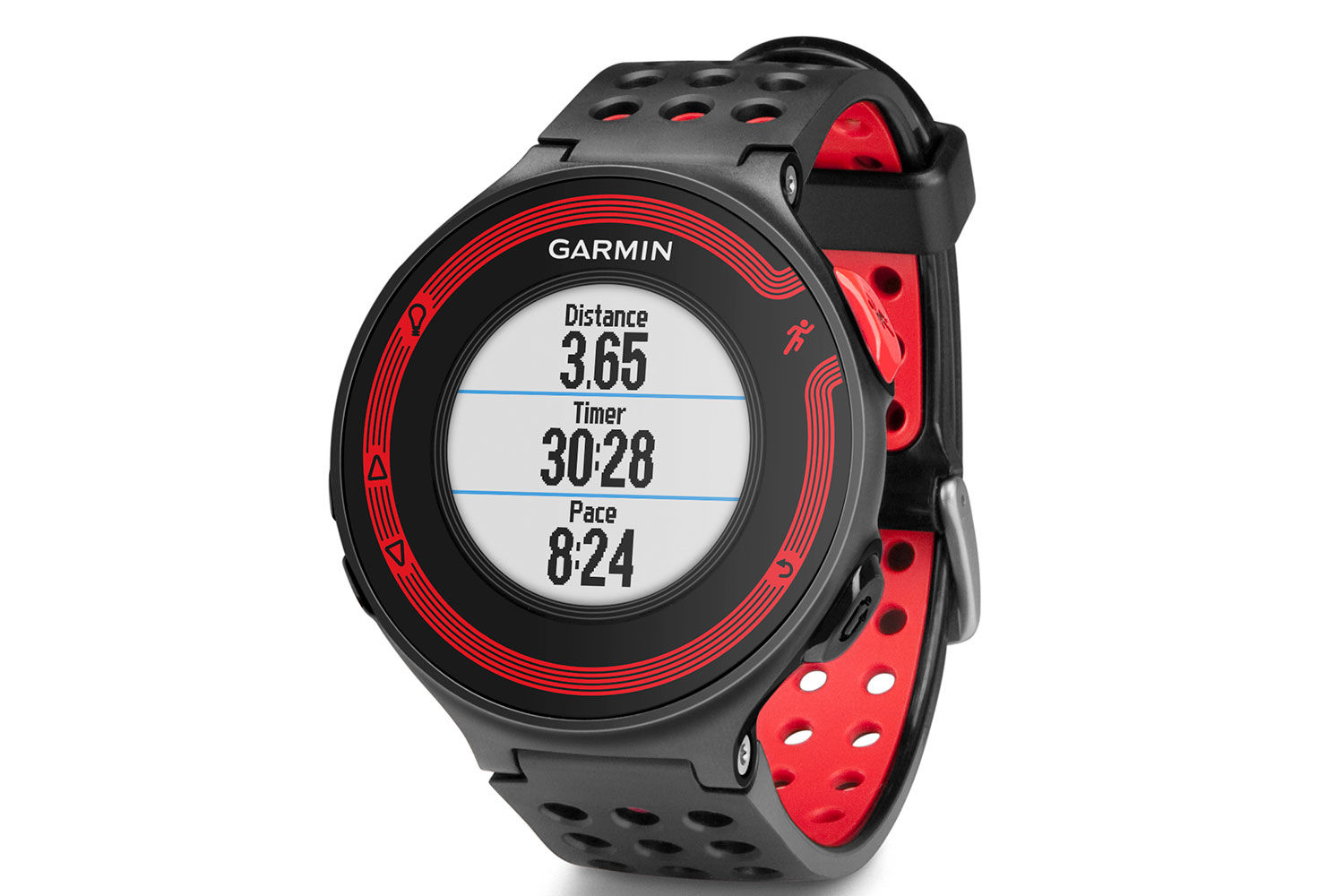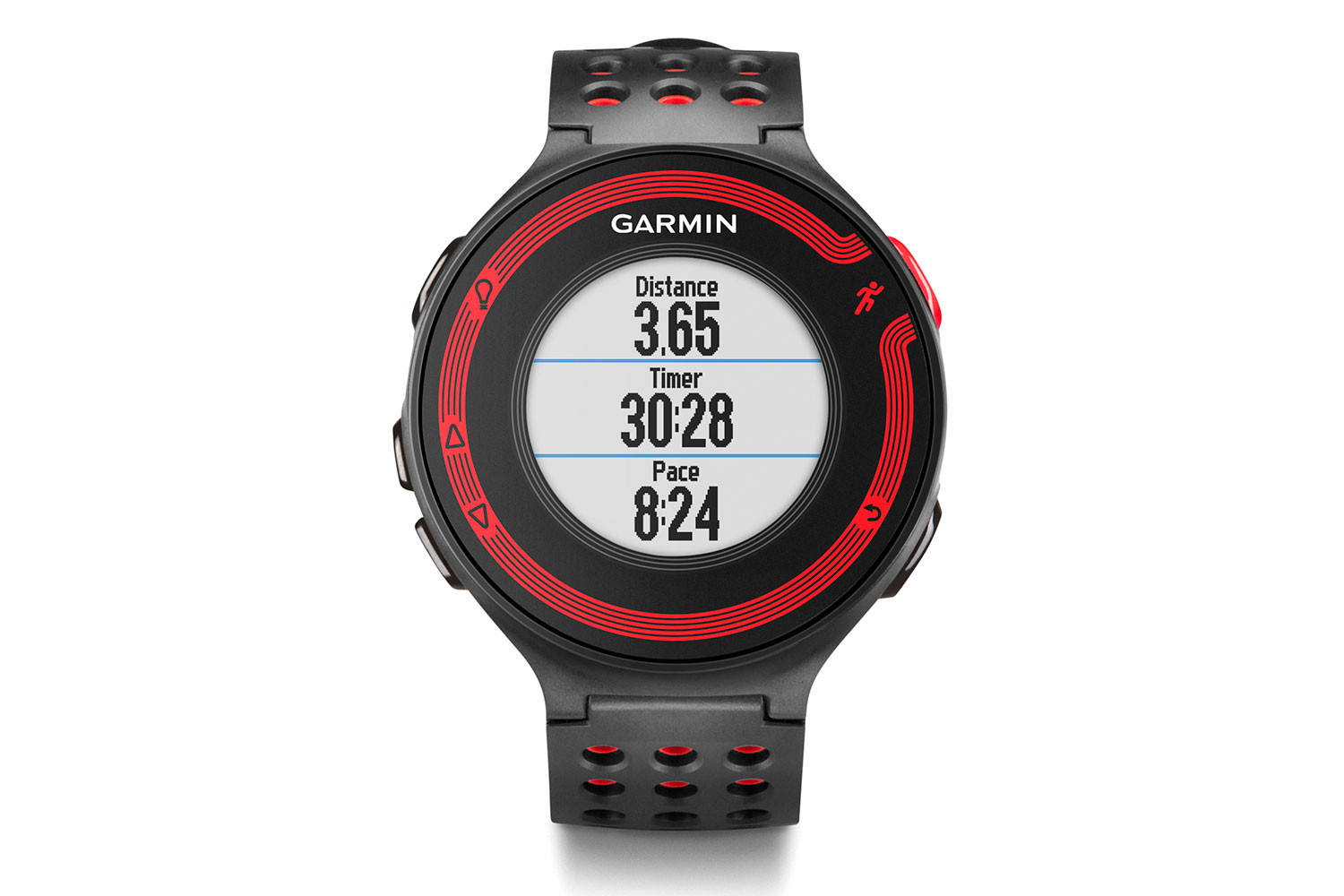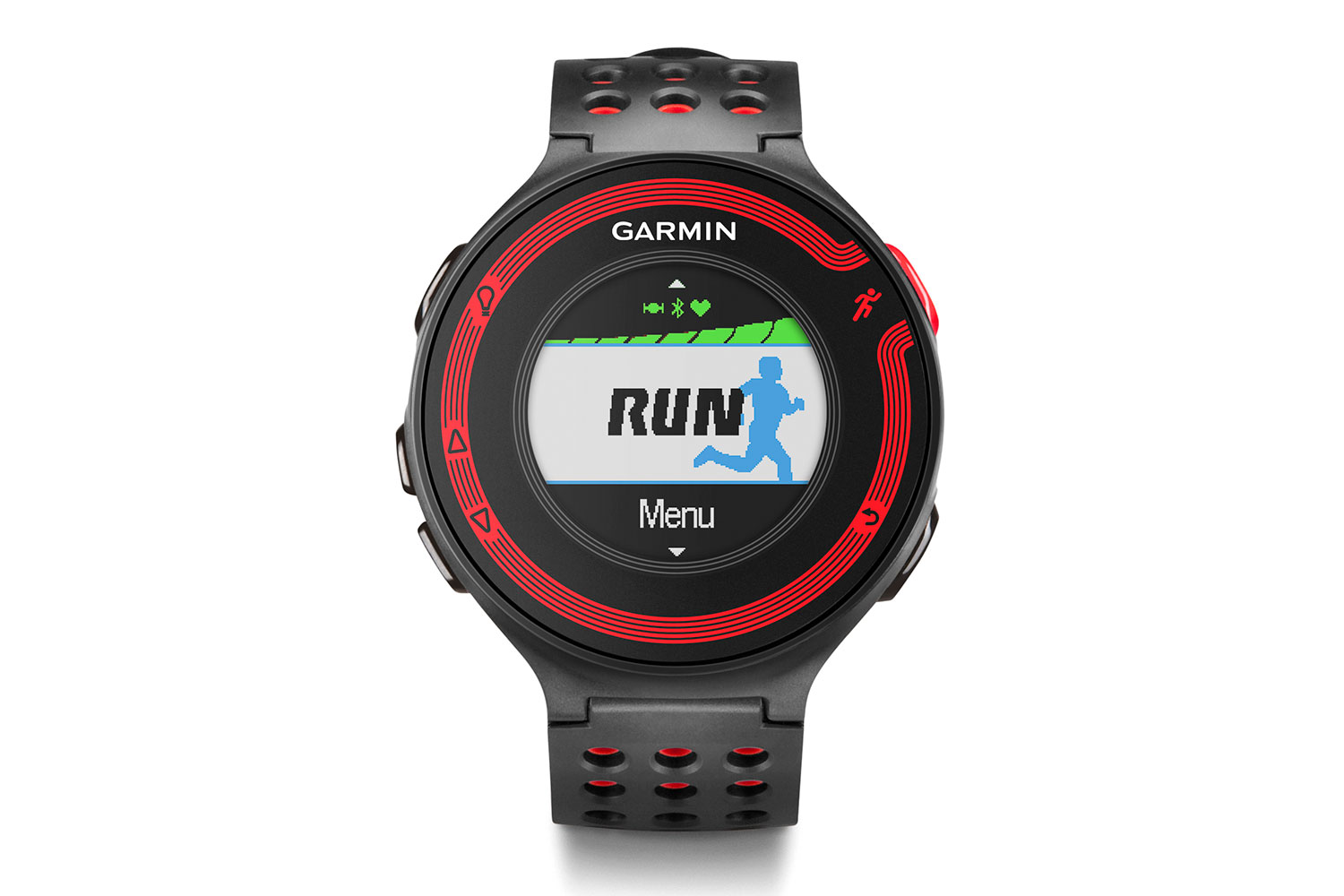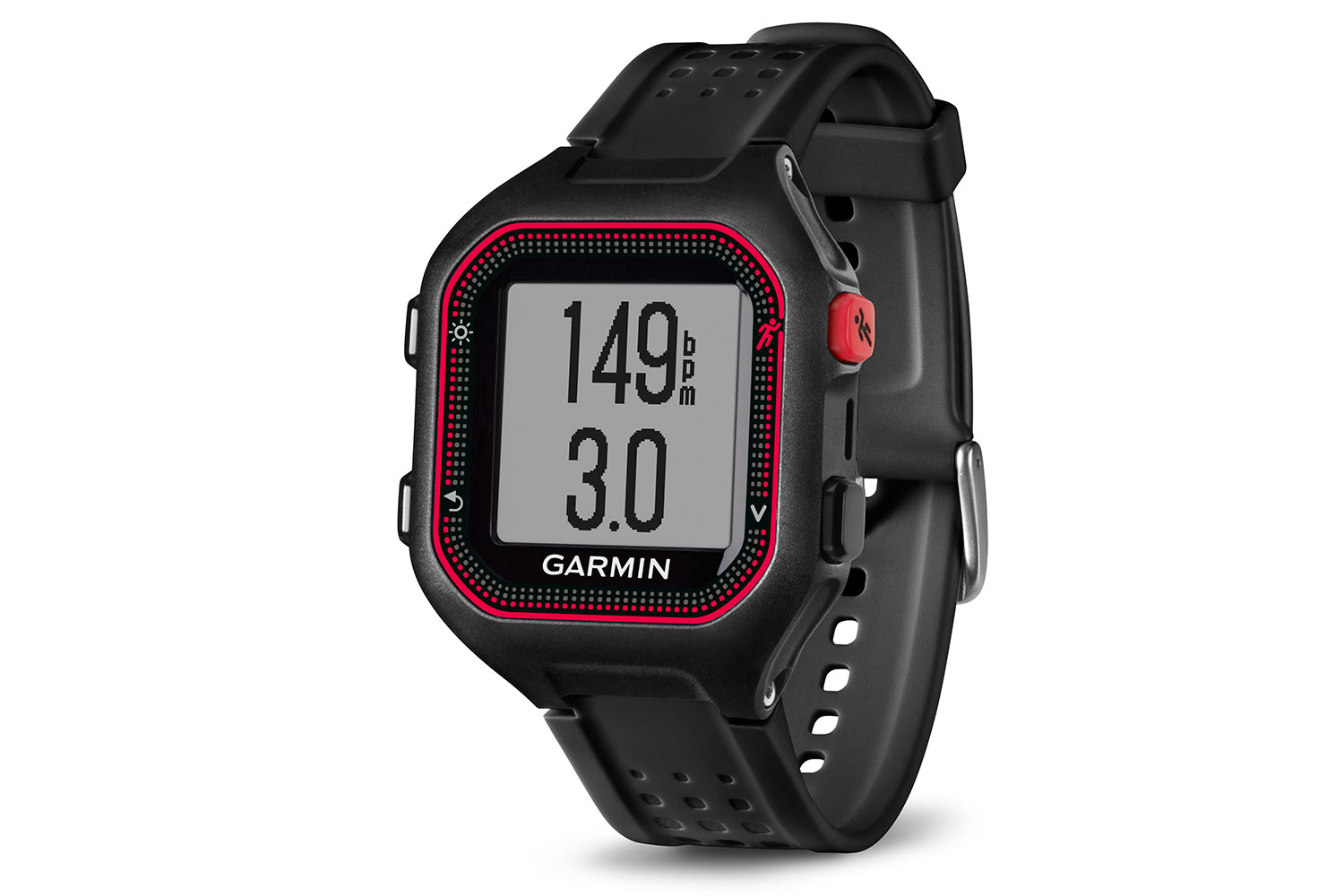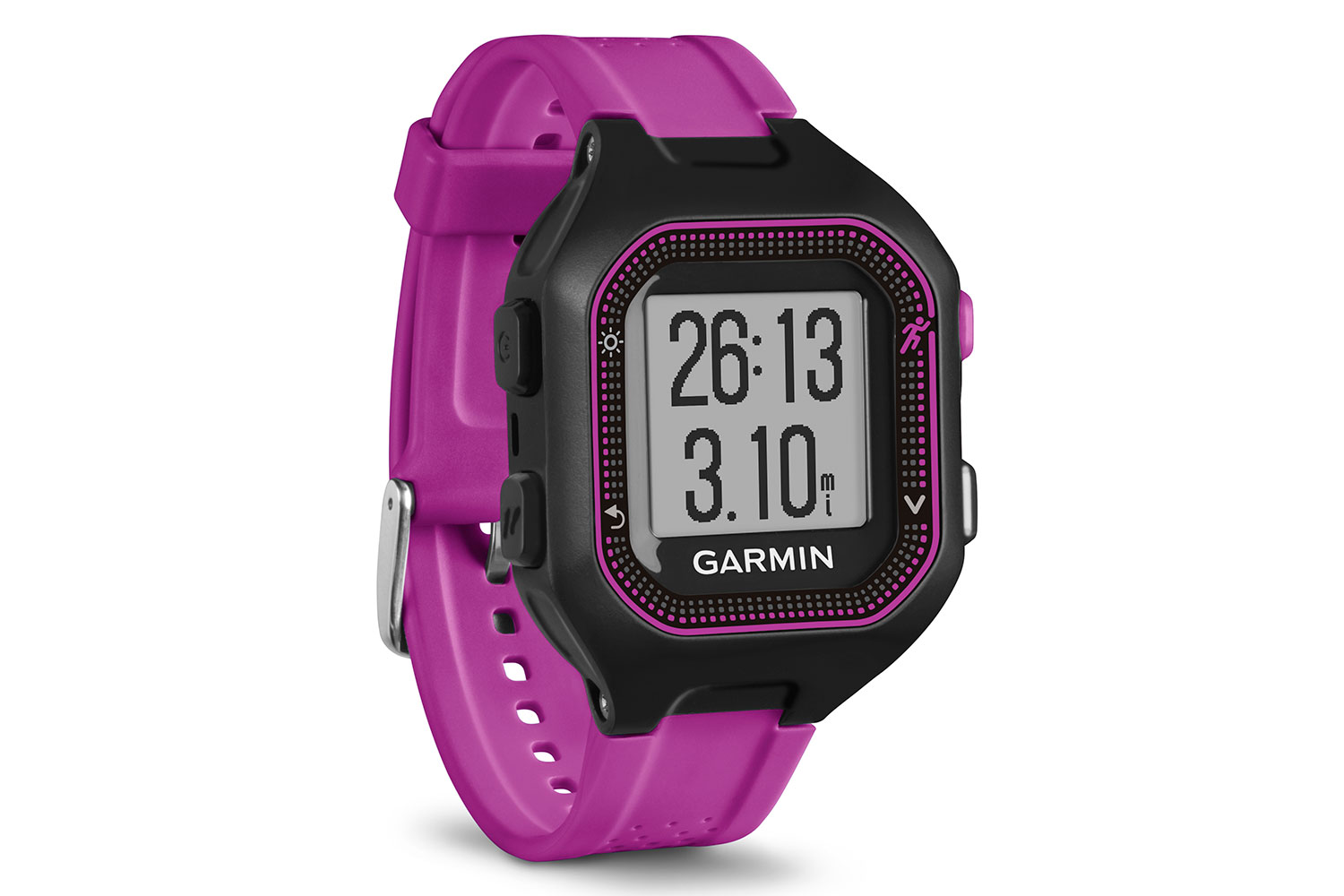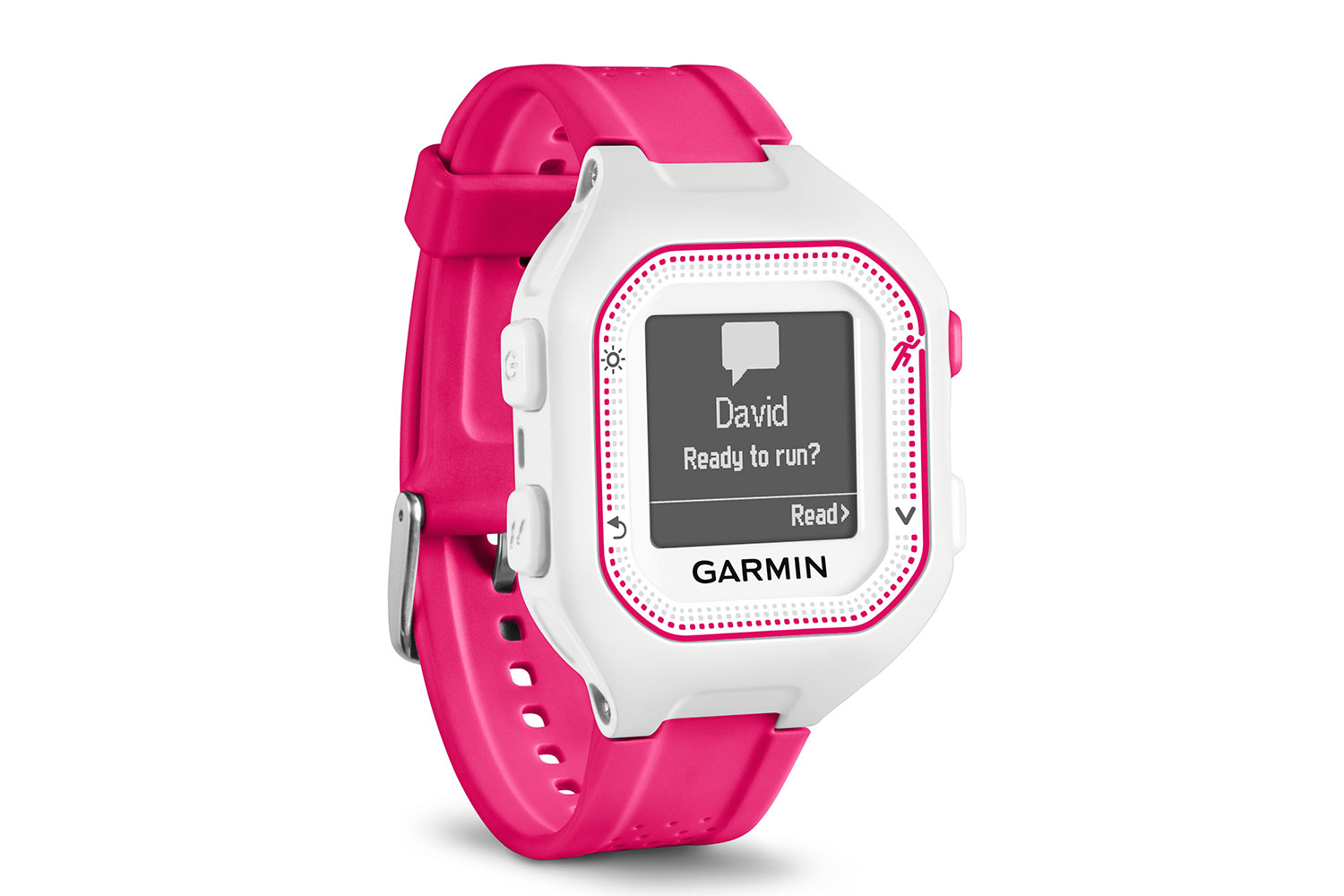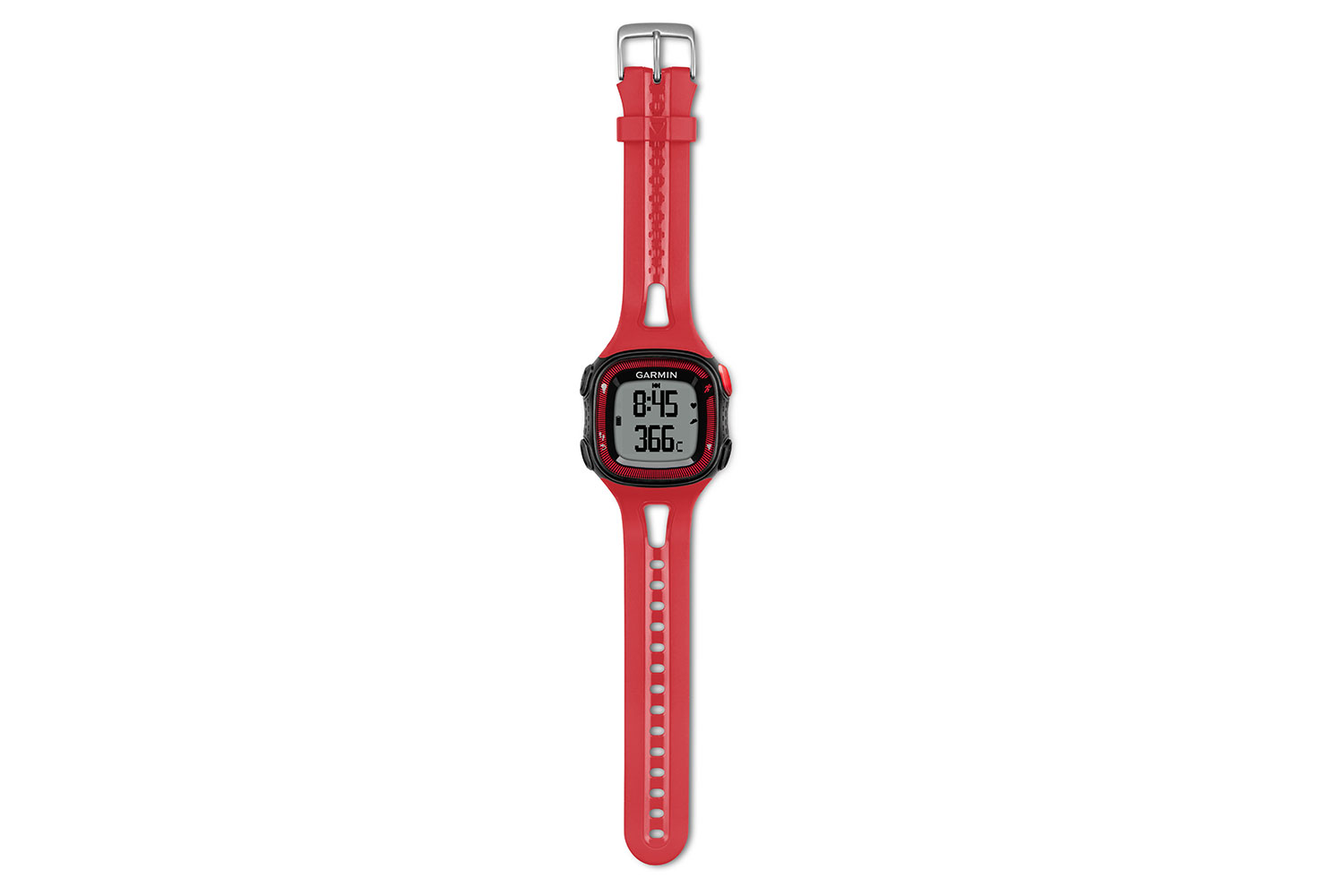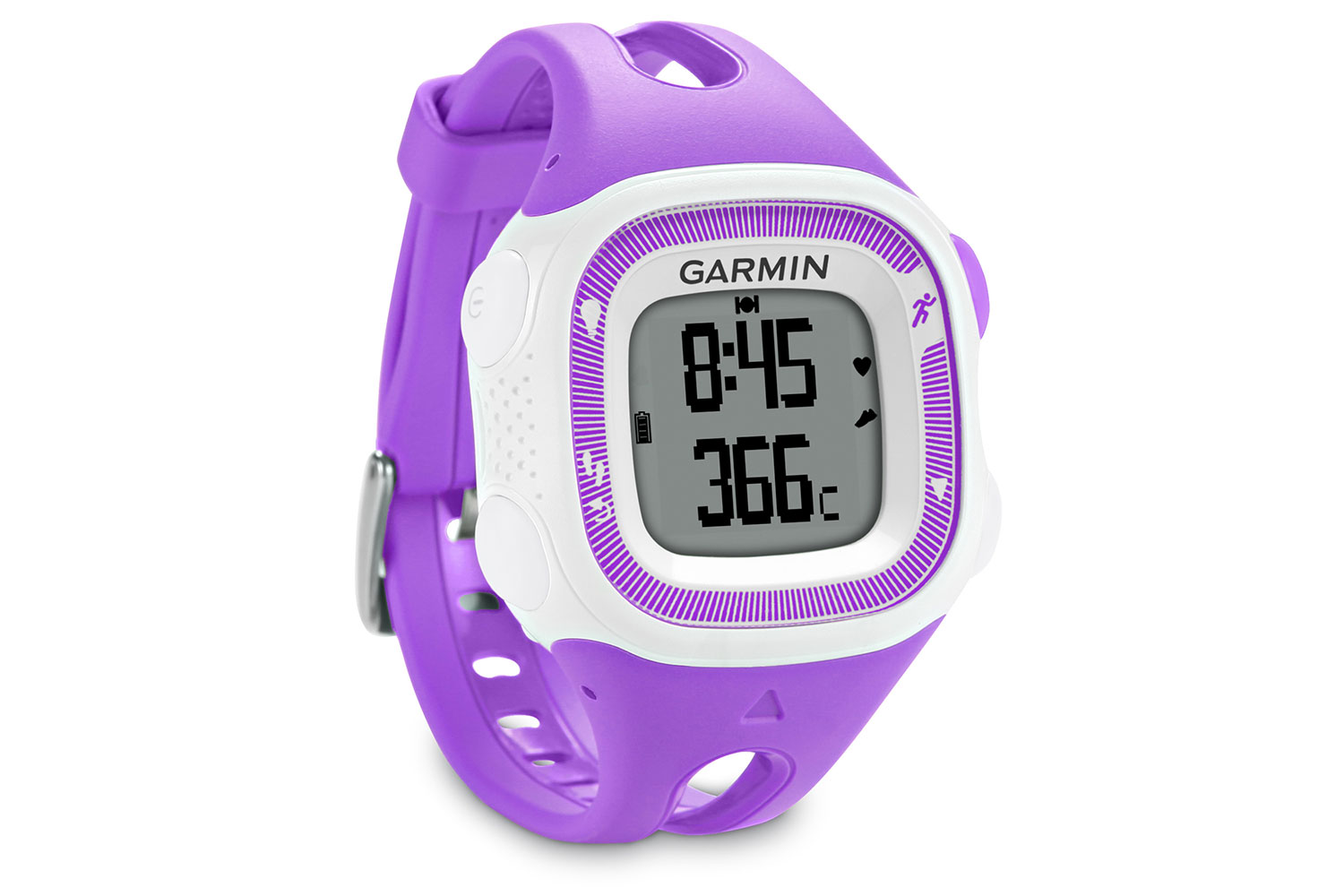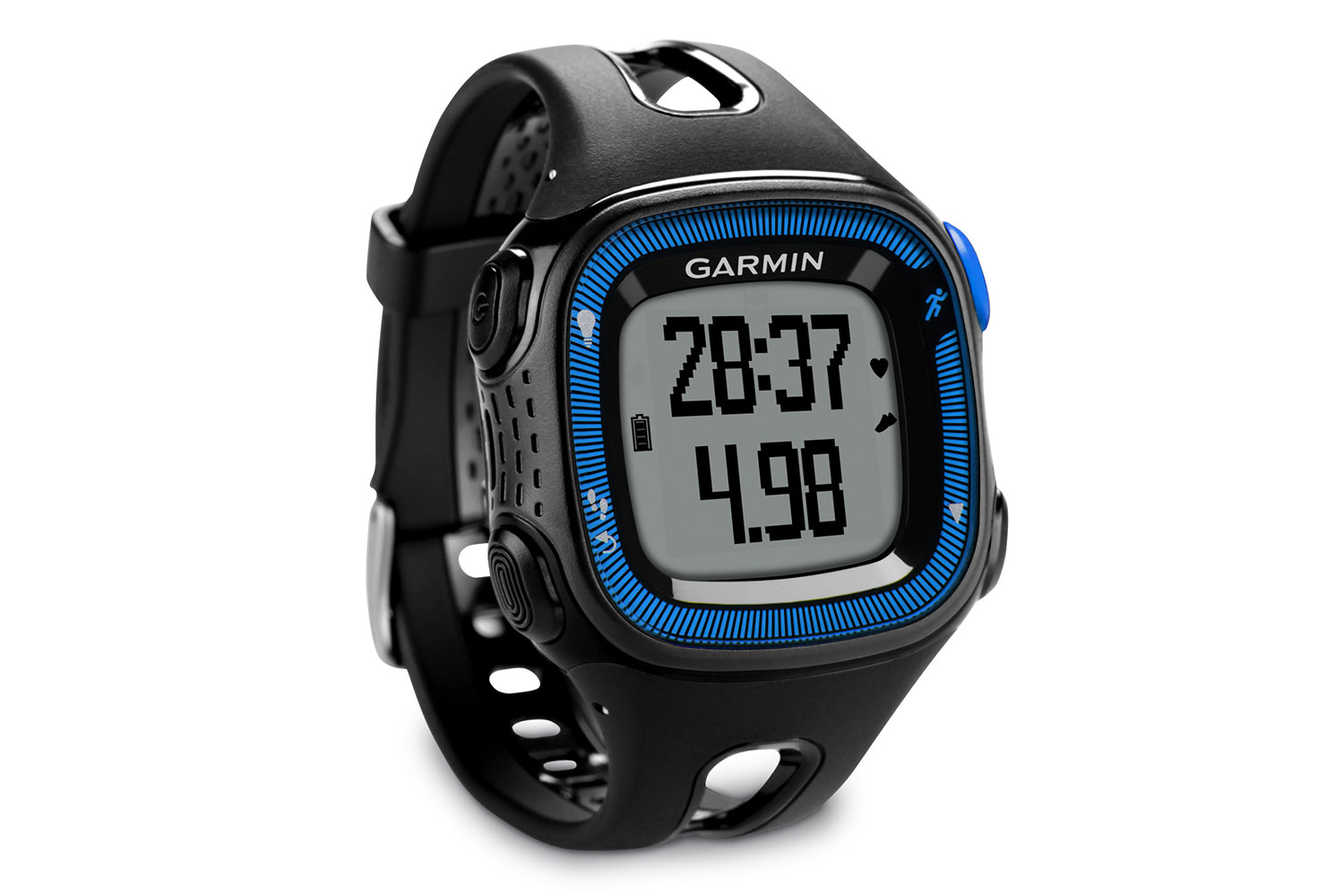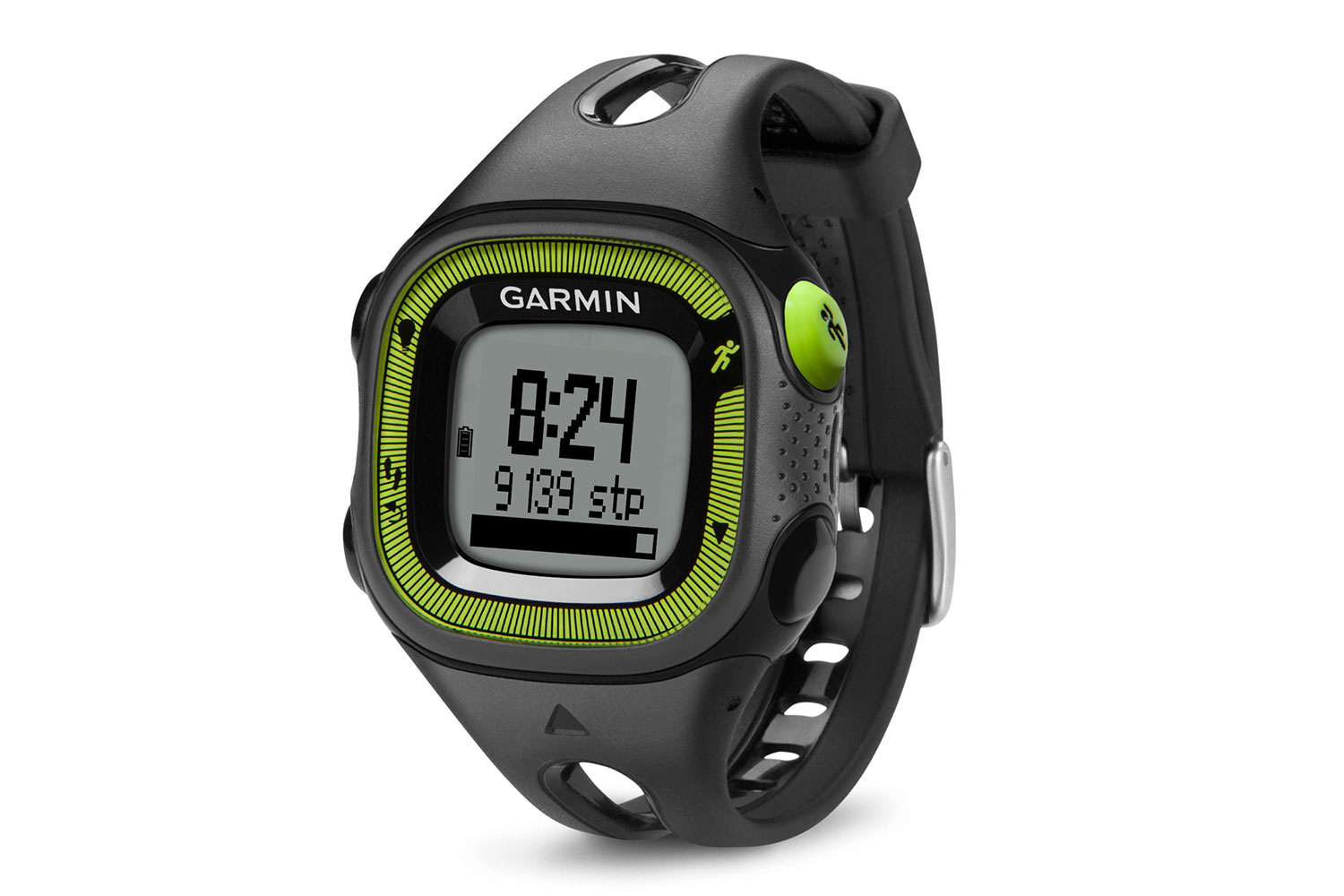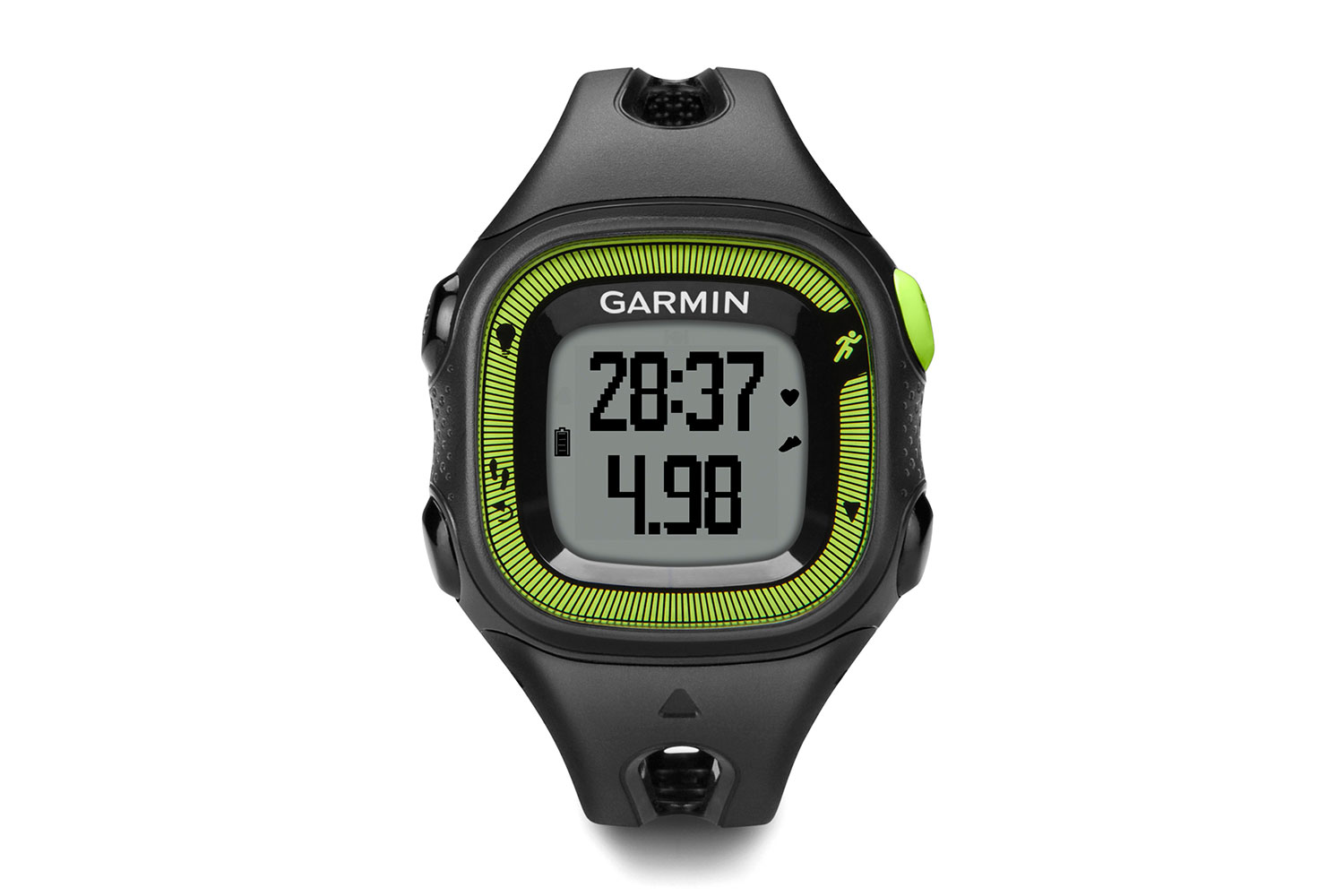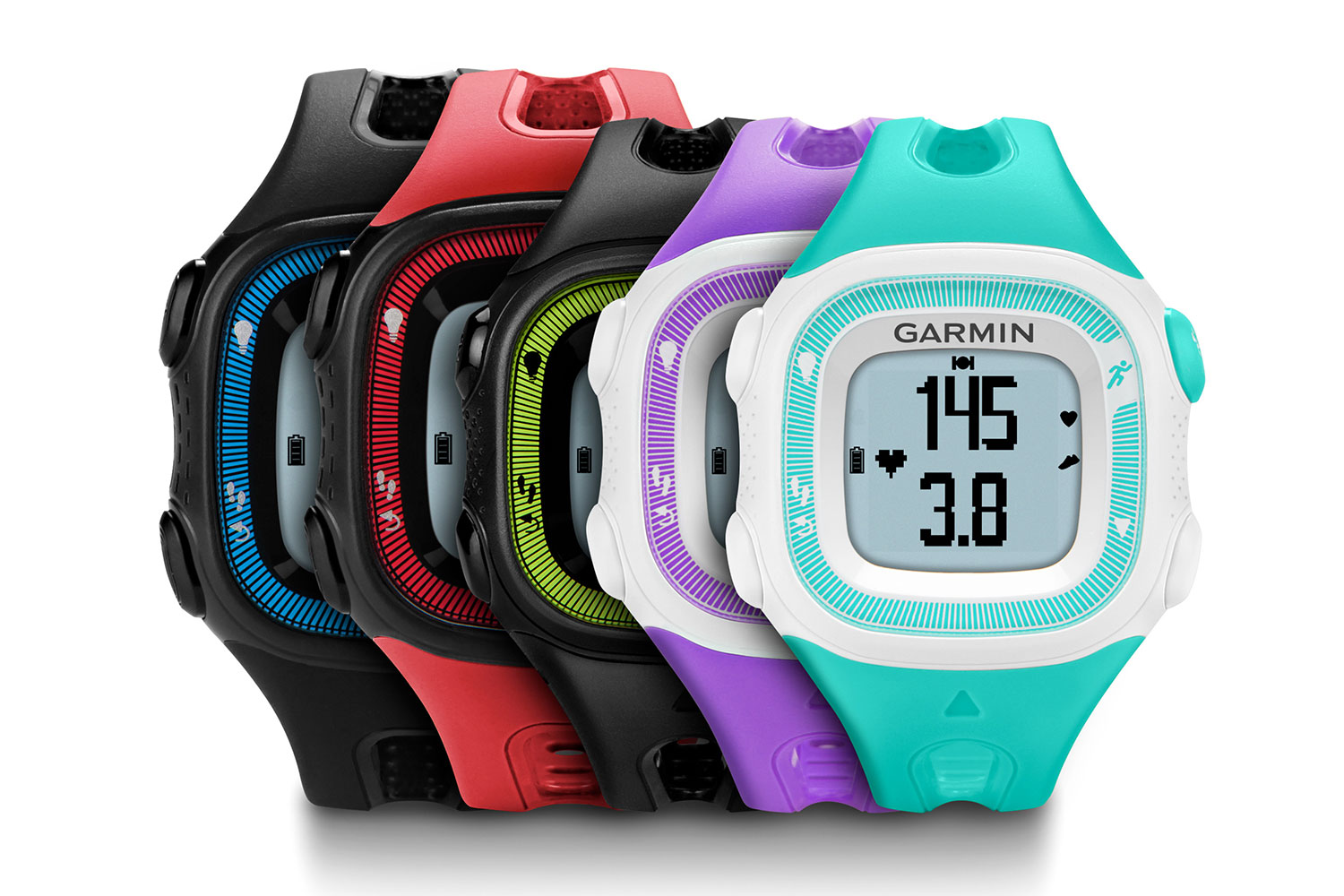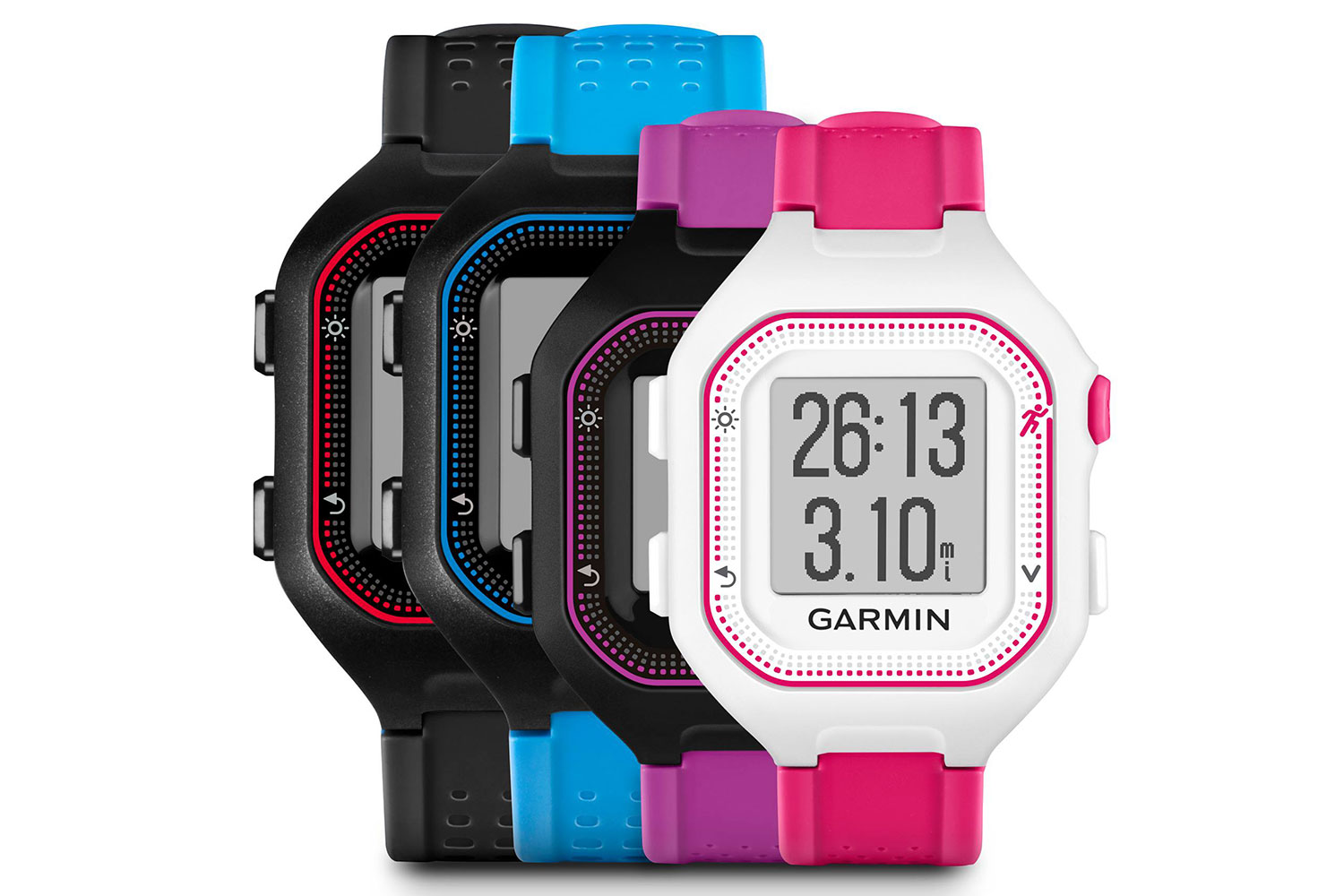Here’s the breakdown of all the new Garmin trackers:
Forerunner 230 and 235
The Forerunner 230 and 235 are very similar in style, but there are a few key differences. Both track the obvious metrics of distance, time, and pace. Neither of the watches have touchscreens, but rely on buttons for navigation instead.
You can wave goodbye to those annoying chest straps, thanks to the optical heart rate sensors in the wrist-worn Forerunner 235. Garmin says its optical heart rate sensor offers superior accuracy as compared to your average smartwatch, and it can track VO2 max. In contrast, the 230 doesn’t have a heart rate sensor built in, but if you already have an ANT+ monitor, you can connect your watch to it, and get VO2 max and heart rate data that way.
The 230 can run (pardon the pun) for 16 training hours or five weeks as a smartwatch, which makes it a decent bet for an activity tracker. It’ll track your steps and remind you to get up if you’ve been sedentary for too long.
The 235’s 11-hour battery life may not be the best as a 24/7 fitness tracker, but it’s ideal for those who want a running watch that they don’t have to wear all the time. The Forerunner 235 features GPS/GLONASS, which drains battery somewhat. Plus, it tracks heart rate zone, VO2 max, and beats per minute in real-time. If you use it only as a watch with notifications and heart rate, it’ll last nine days on a charge.
The 235 costs $320 and the 230 will run you $250.
Forerunner 630
The Forerunner 630 will last through 16 hours of training and four weeks as a watch before you have to charge it up again. Although it’s surprising that it doesn’t offer Garmin’s Elevate — the company’s new wrist-based heart rate monitor — the 630 does give wearers detailed fitness and running-specific info that’s hard to find on other devices: Stride length, ground contact time, vertical oscillation, and ratio. All of these metrics are helpful to hardcore runners, and the lactate threshold and cadence measurements are handy for a broader range of workouts. It’s also the only one of the three new watches with a touchscreen.
The Forerunner 630 — sans heart rate monitor — costs $400.
Updated app and website
All of the new Garmin watches work with Connect IQ, the third-party app platform for Garmin devices that lets you customize the screens. This makes it easy to add apps and widgets, as well as change watch faces and adjust the way data appears on screen.
Garmin’s release of the 230, 235, and 630 coincides with a slew of updates for the Connect app for iOS and Android. Those with the right devices can push the important info from their phones to their Garmin watch or computer — that is, unless you have a Windows Phone. That means no awkwardly digging your shiny new Note 5 or iPhone 6S out of your pocket (with possibly sweaty hands) to check notifications or change music tracks.
The update to Connect mobile lets you upload your data wirelessly to Connect online, Garmin’s hub and sharing site that keeps all your stats in one place. Now the update lets you see all the activities saved on Garmin Connect. Compare your workouts to others on the network, compete in challenges, and use Live Track to follow users in real-time. As one user pointed out, that’s perfect for group runs or rides.
Each watch has something good for fitness fans. According to the specs, the 230 is a solid all around GPS watch that should work well as an activity tracker, the 235 finally brings us wrist-based heart rate direct from Garmin, and the 630 has a specificity of data that would appeal to any runner, especially those already comfortable with the established brand.
